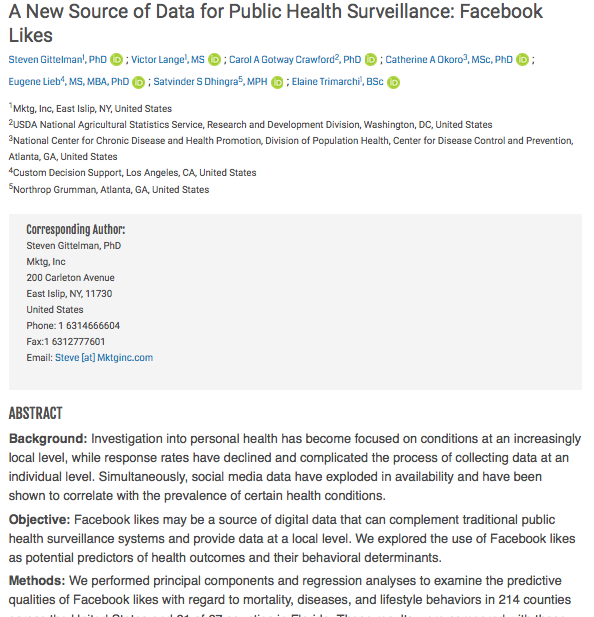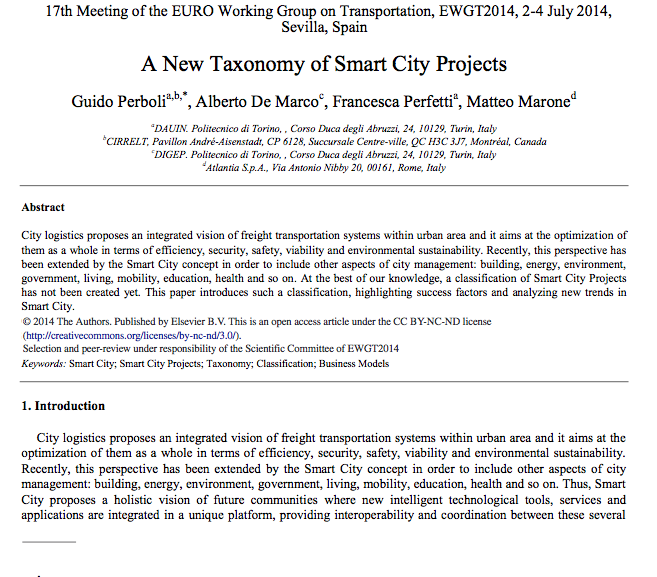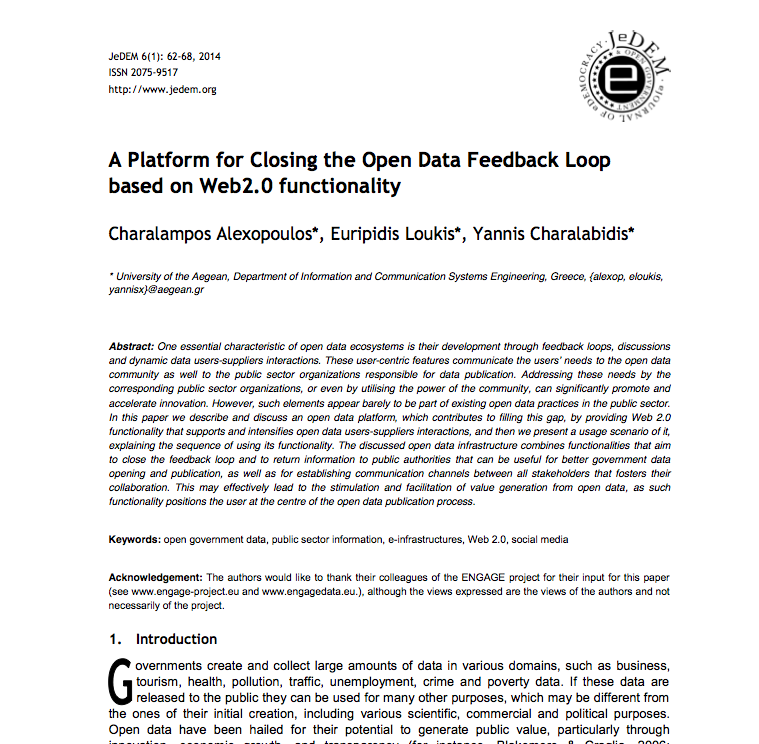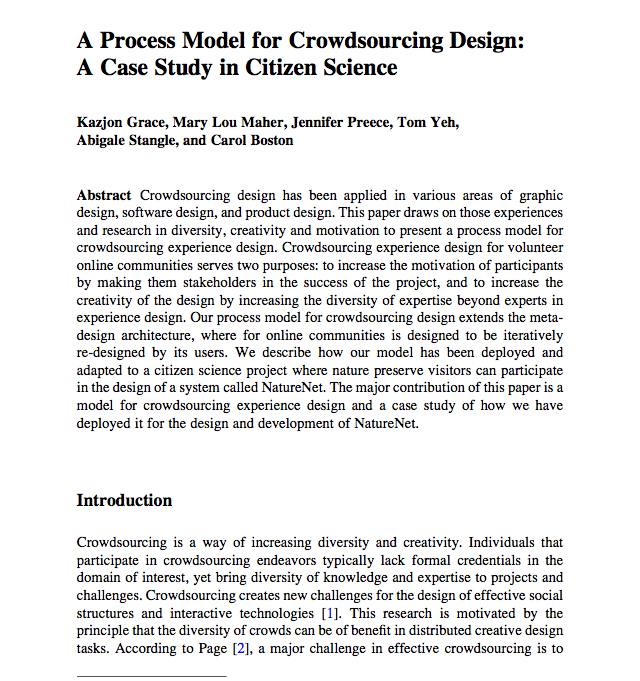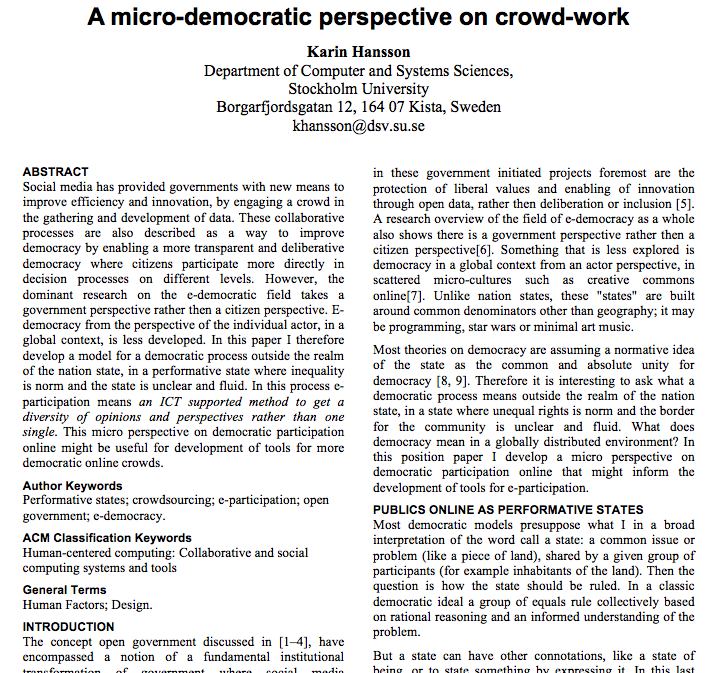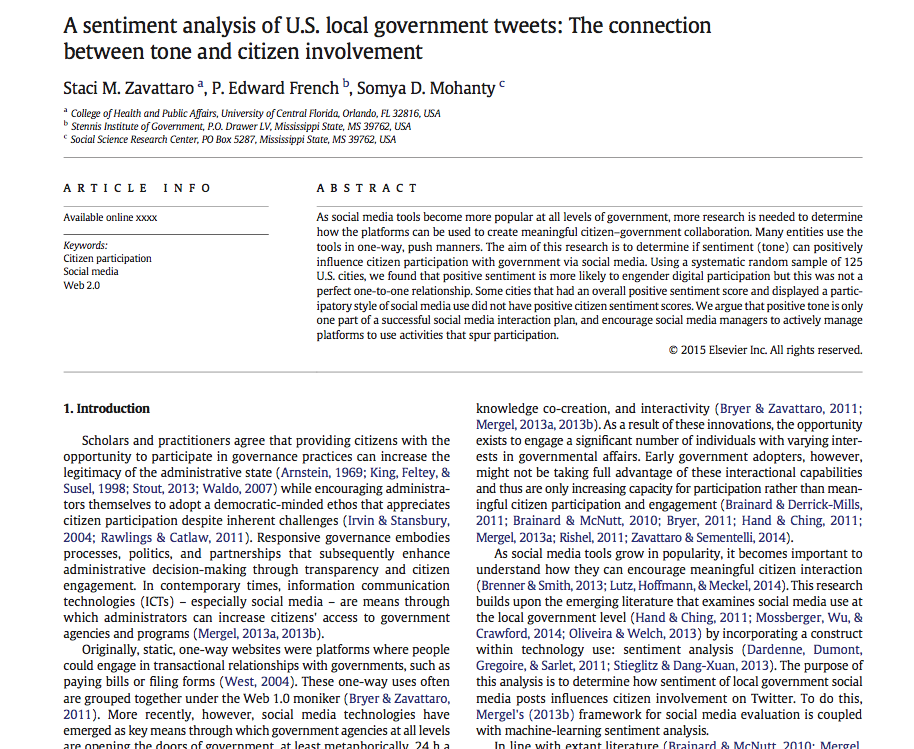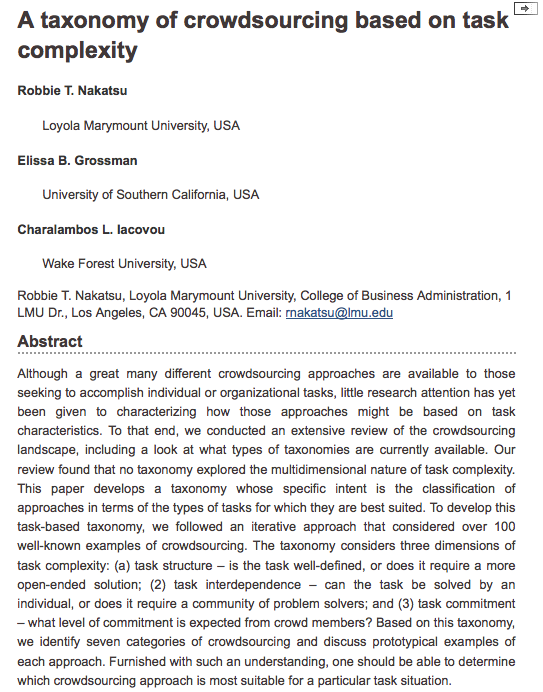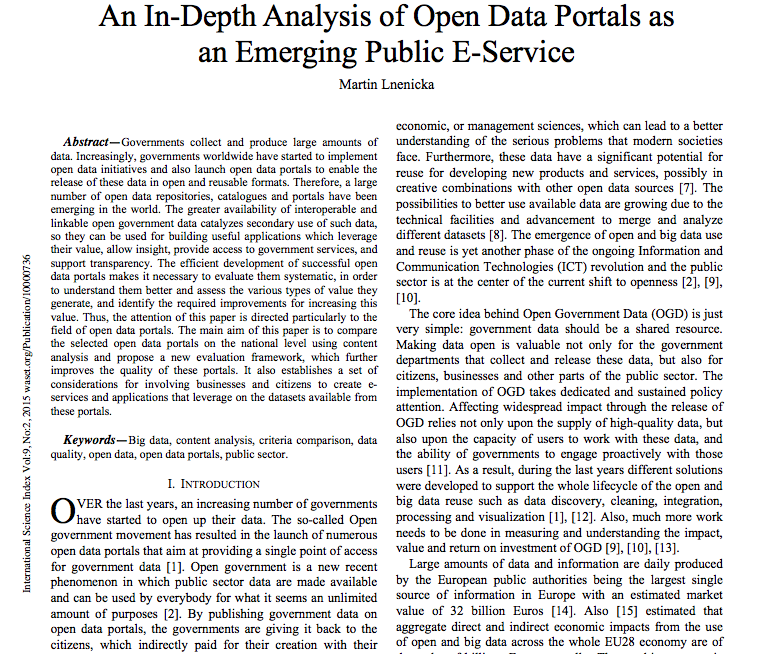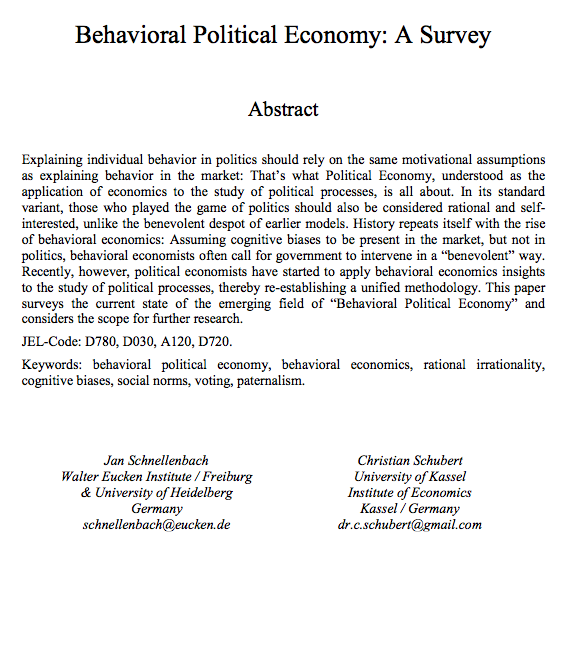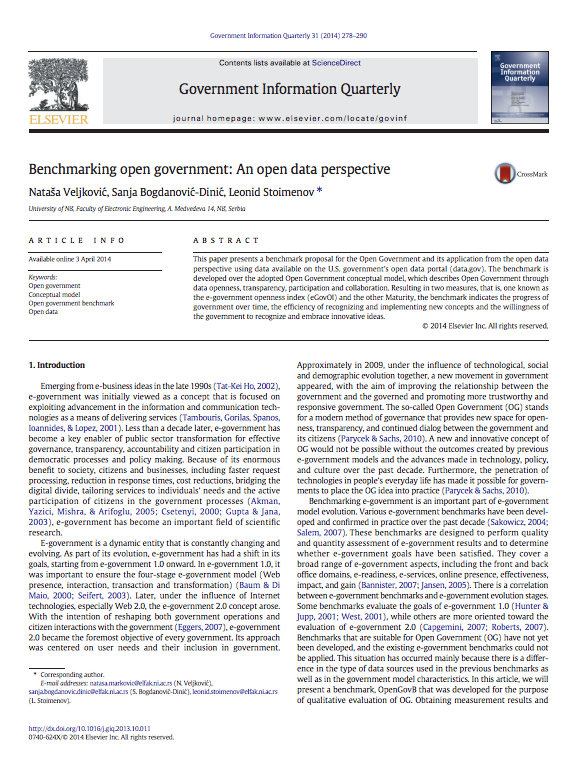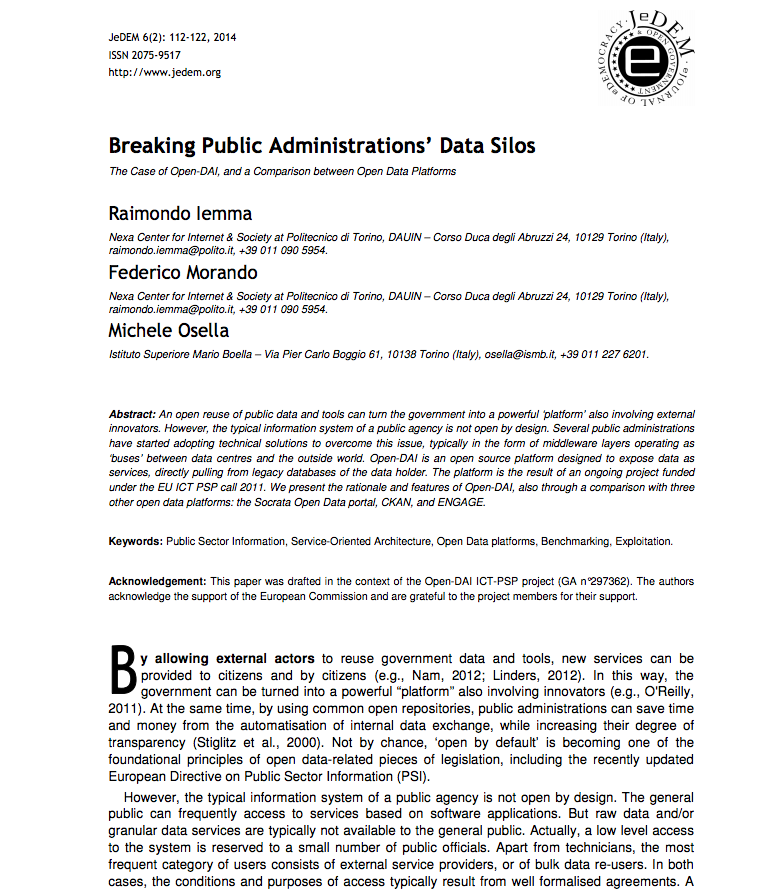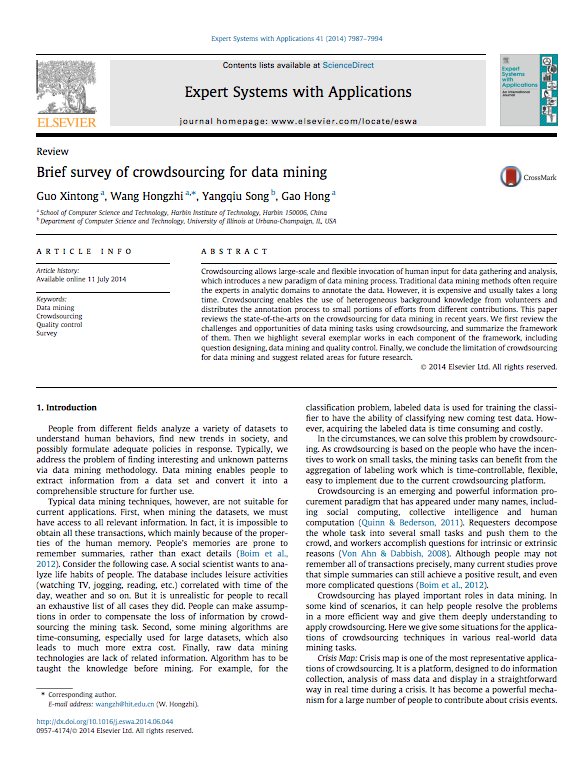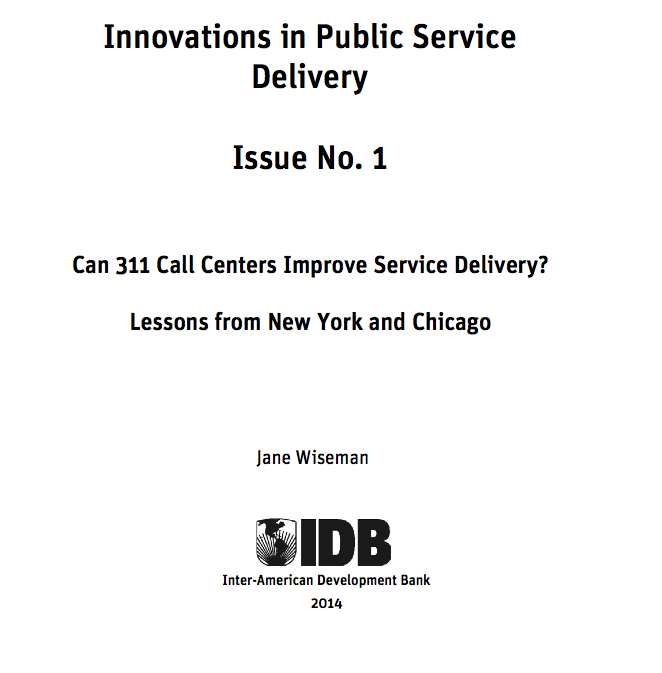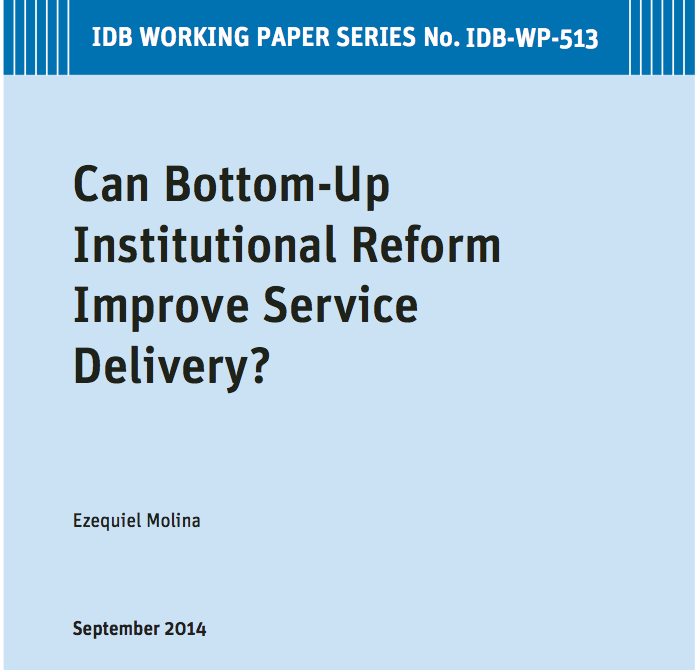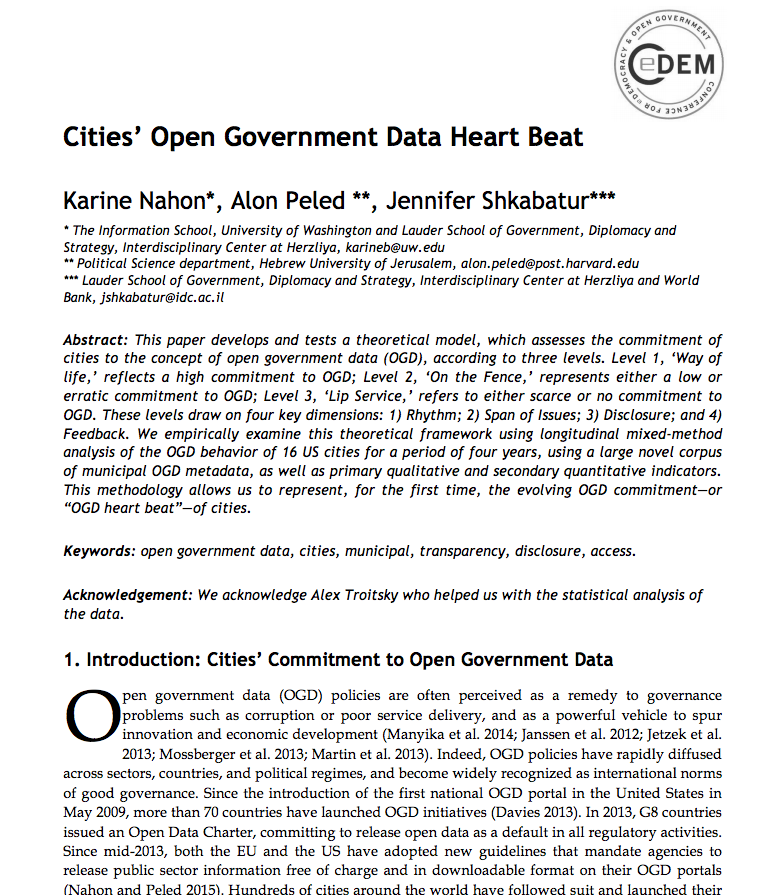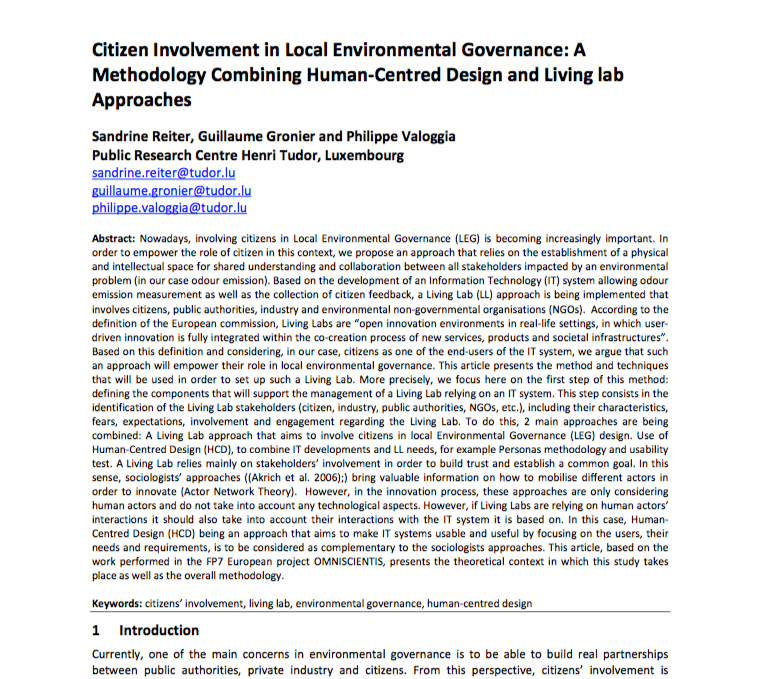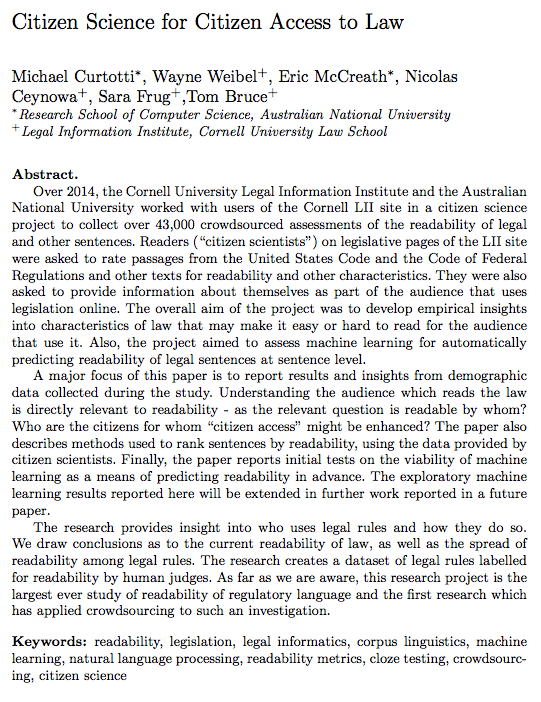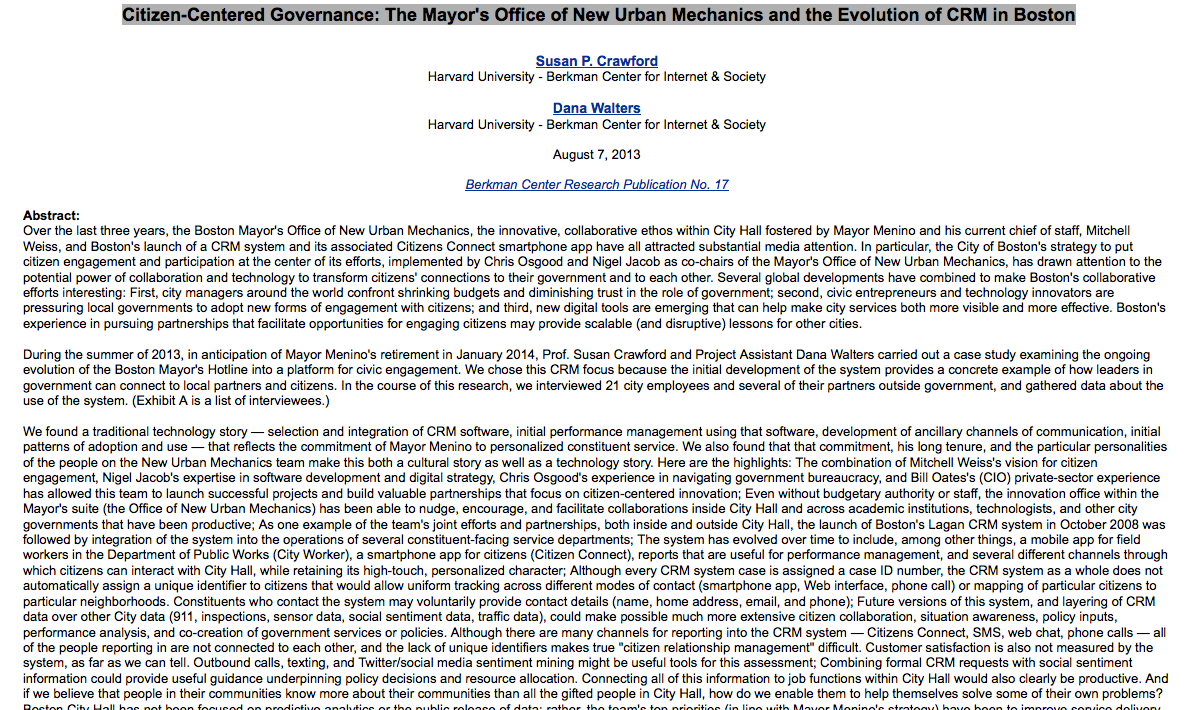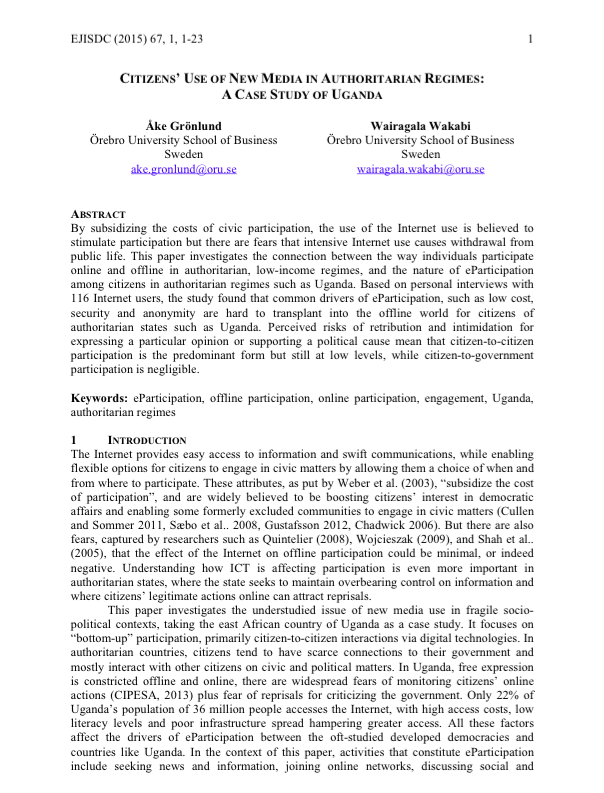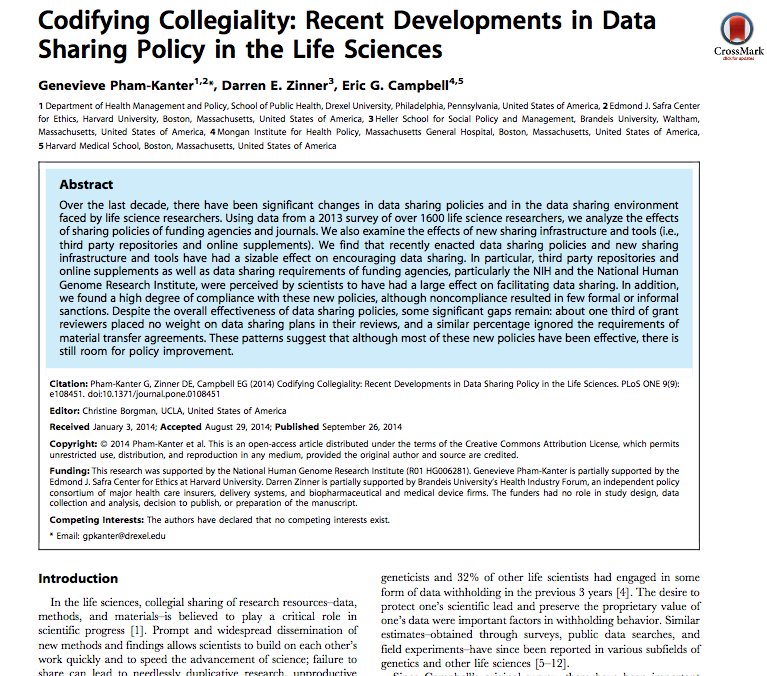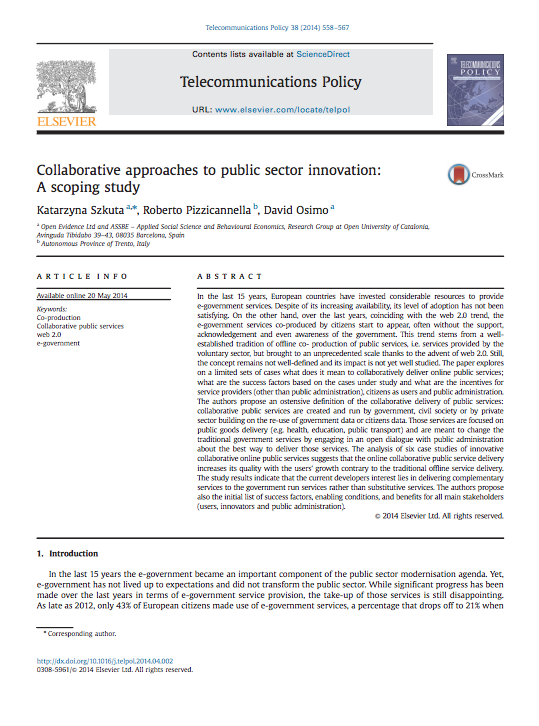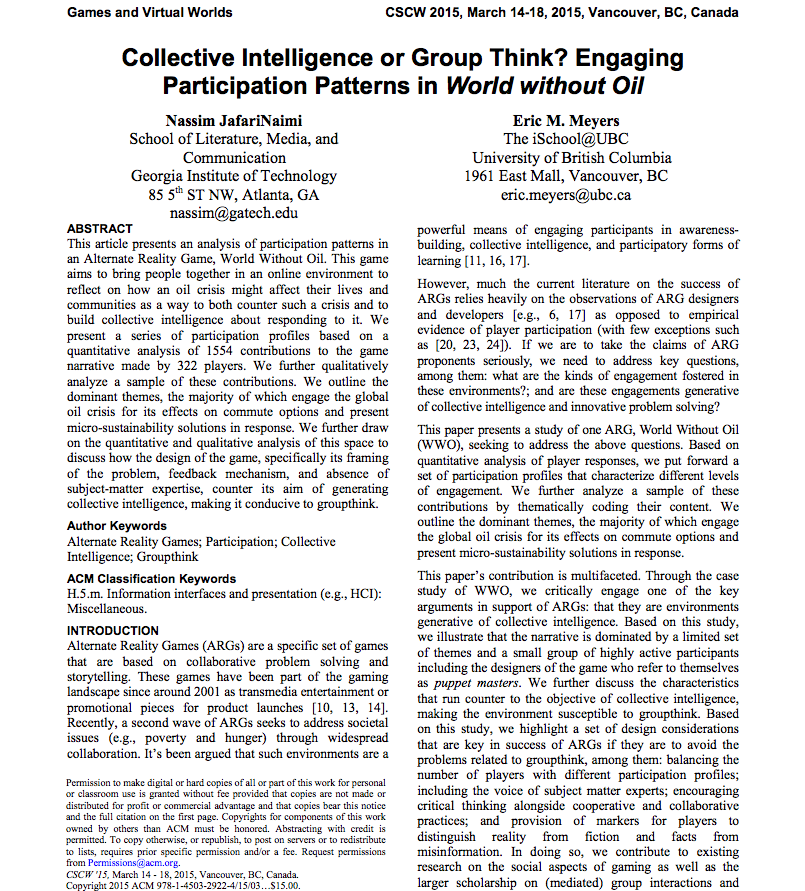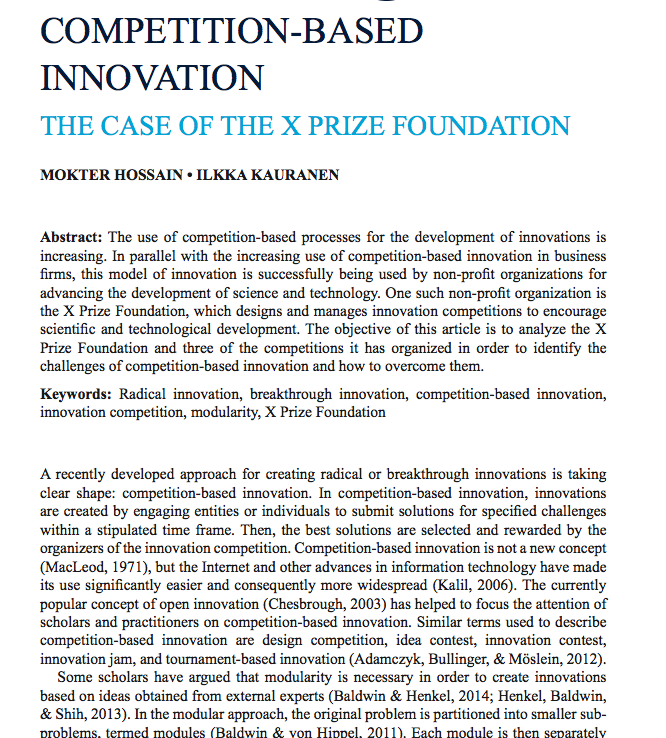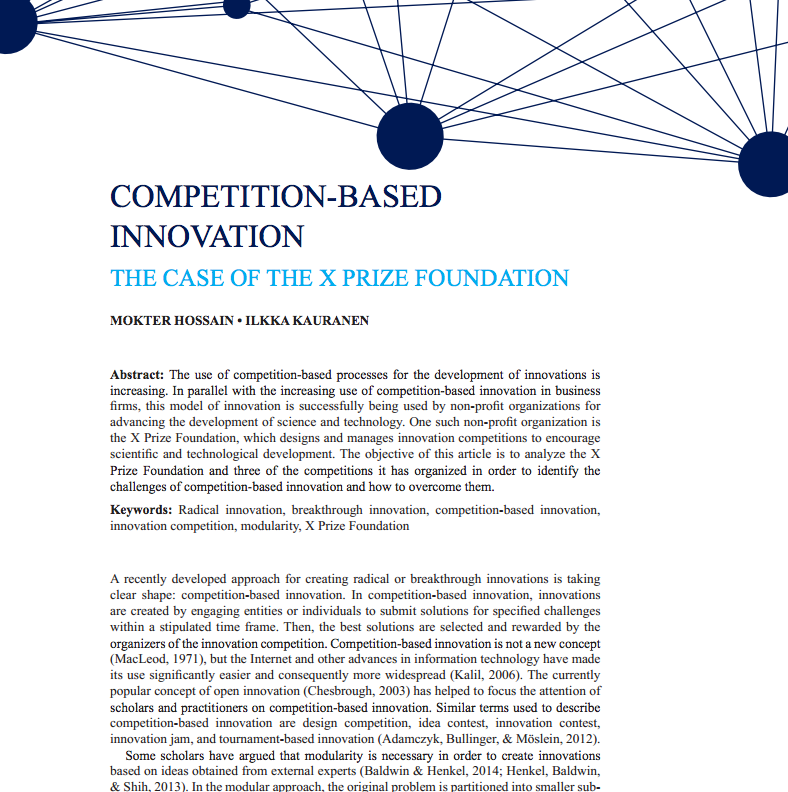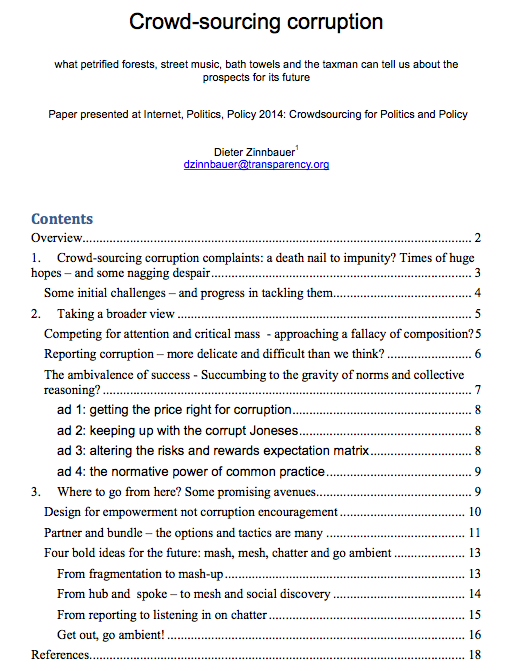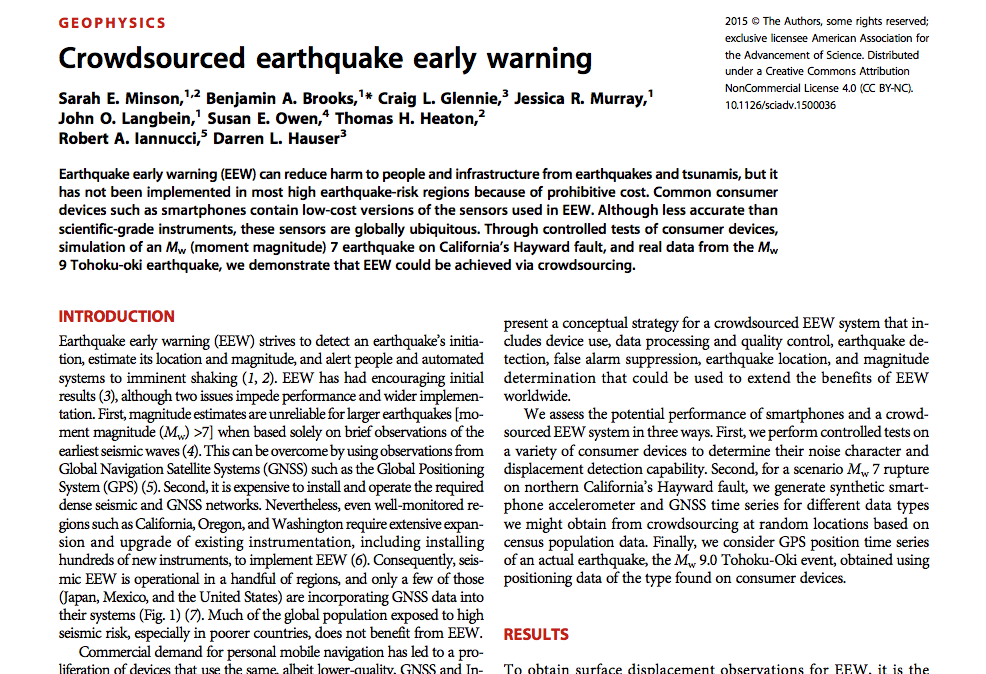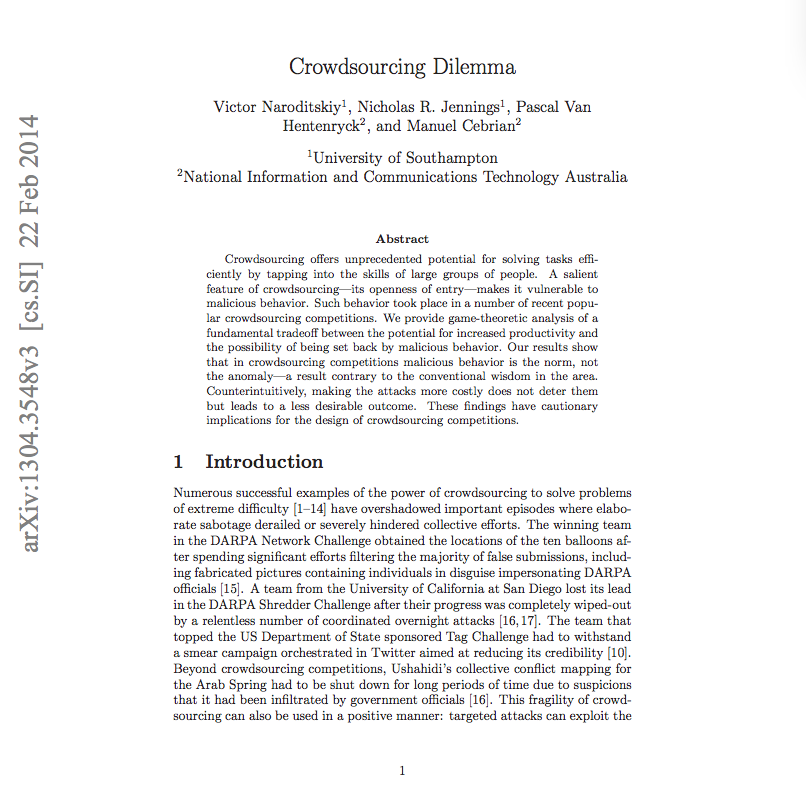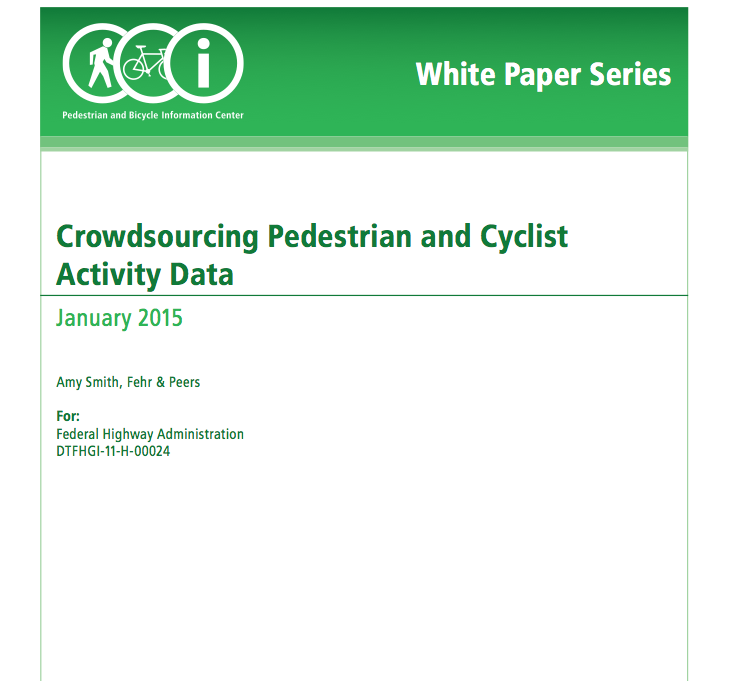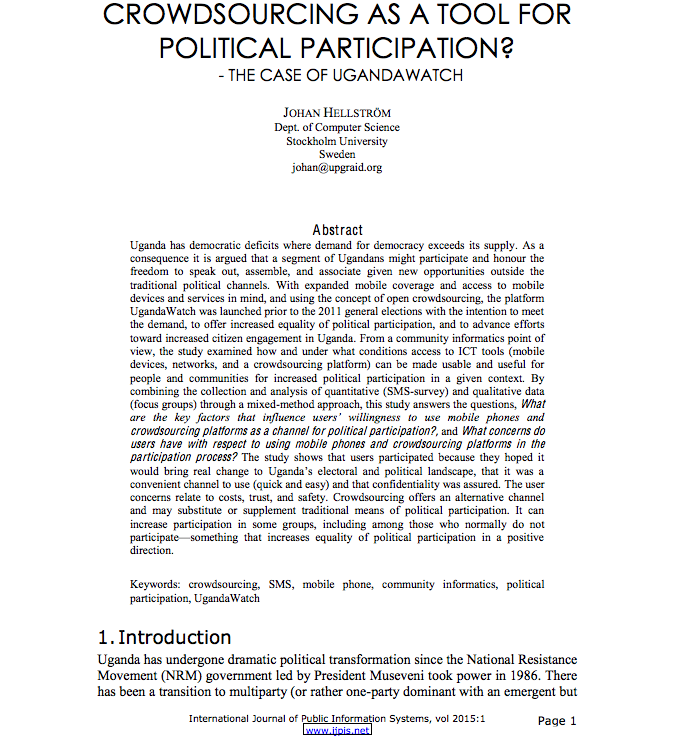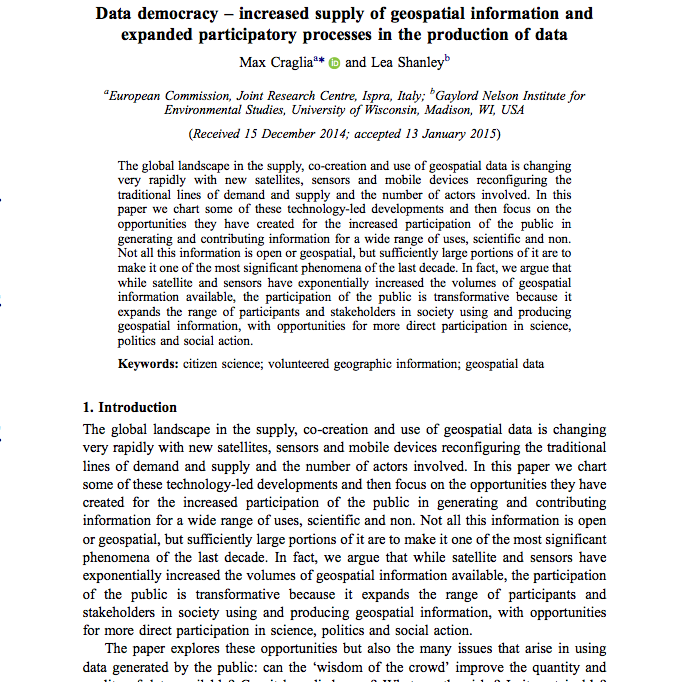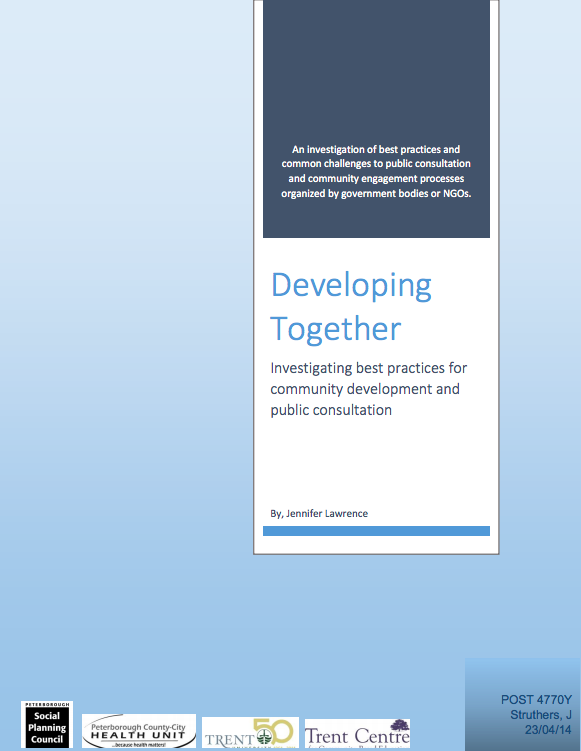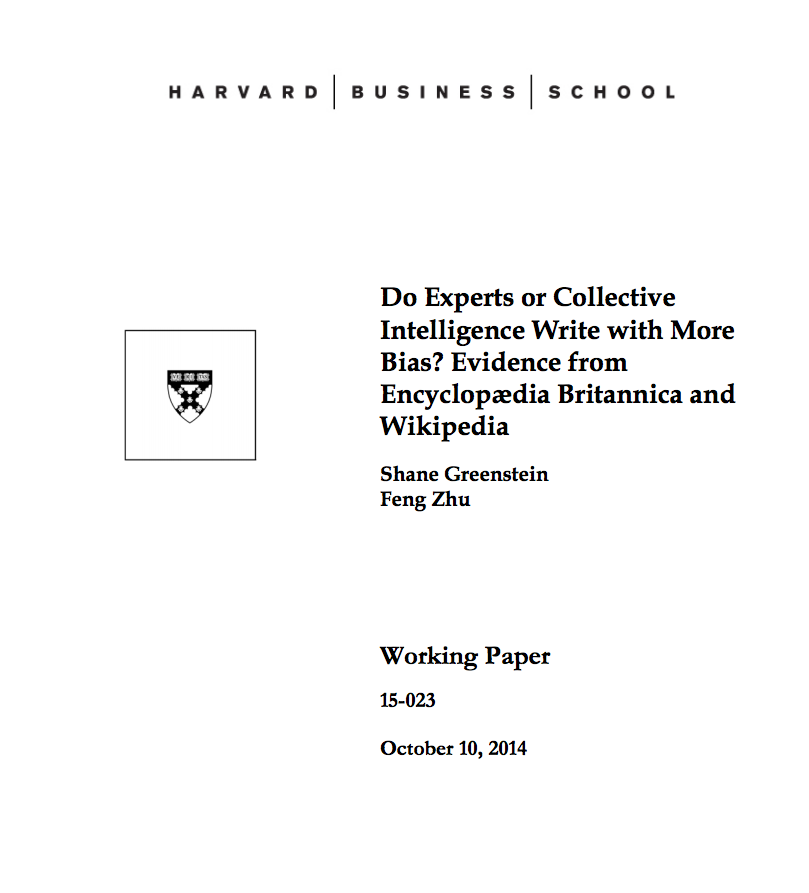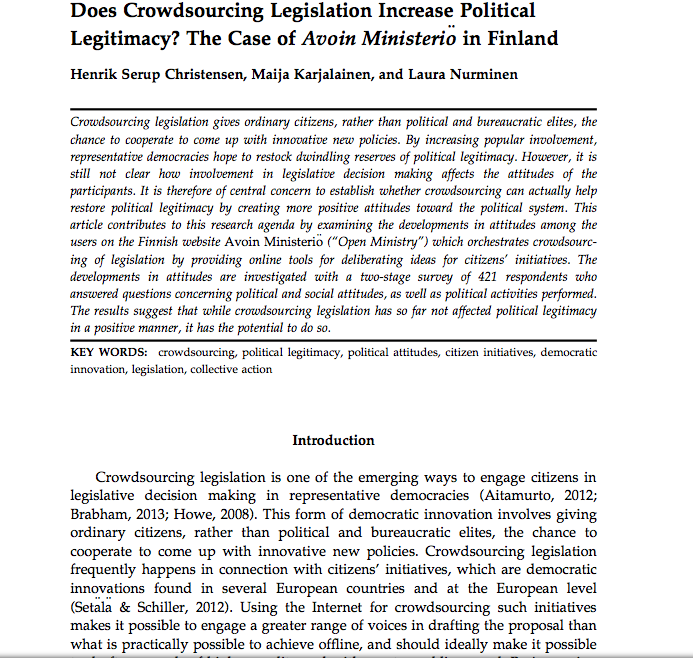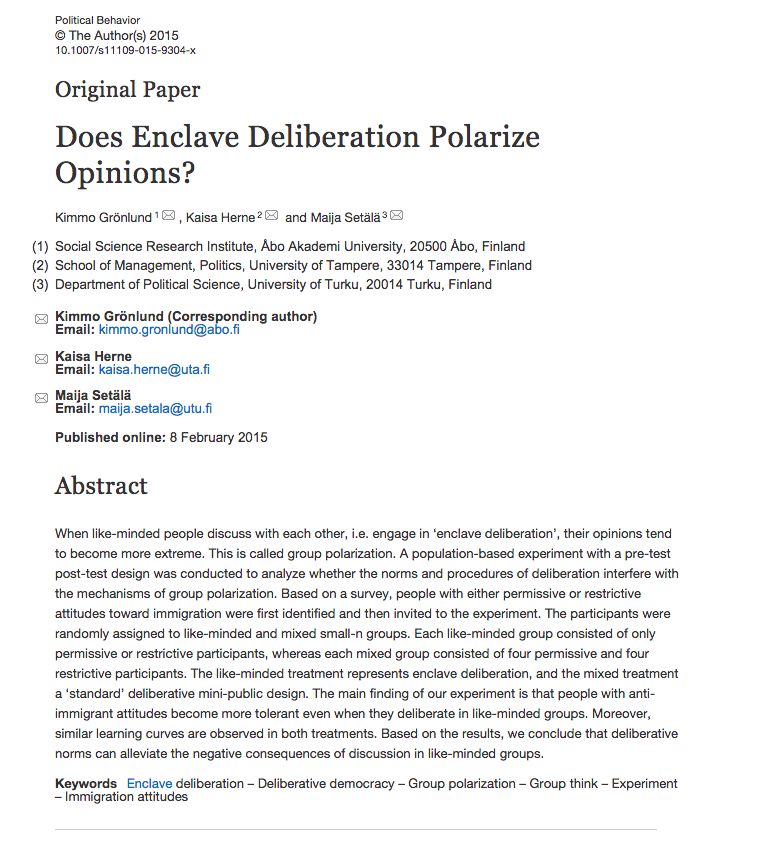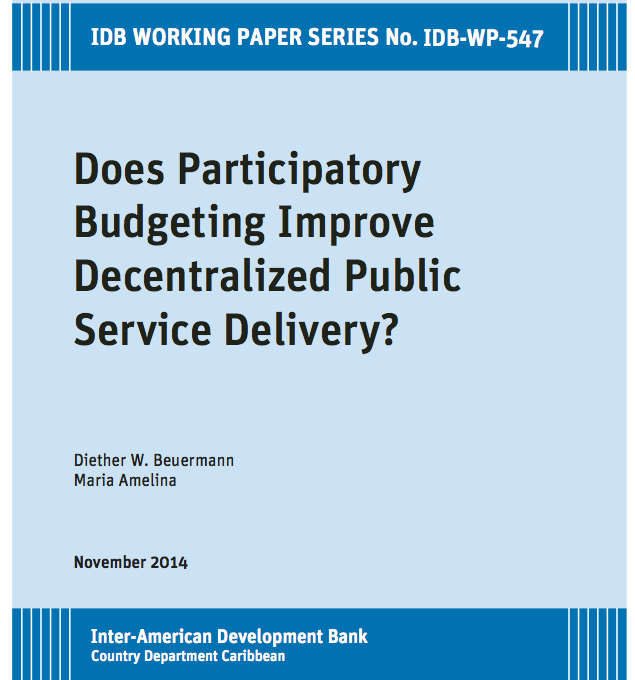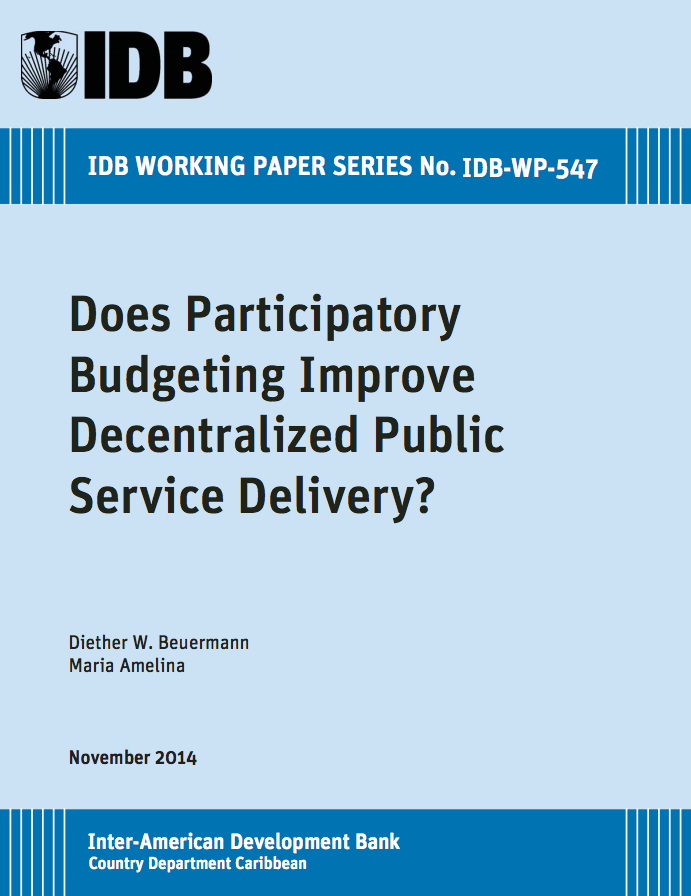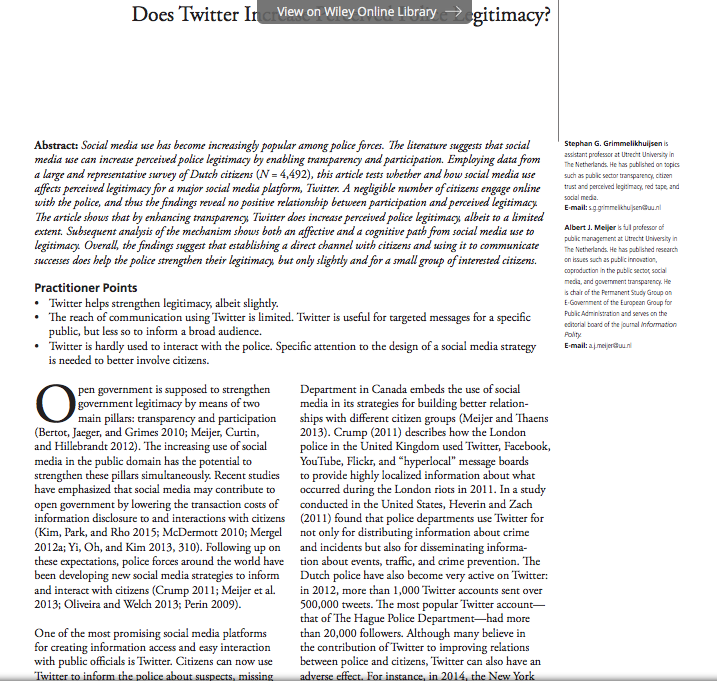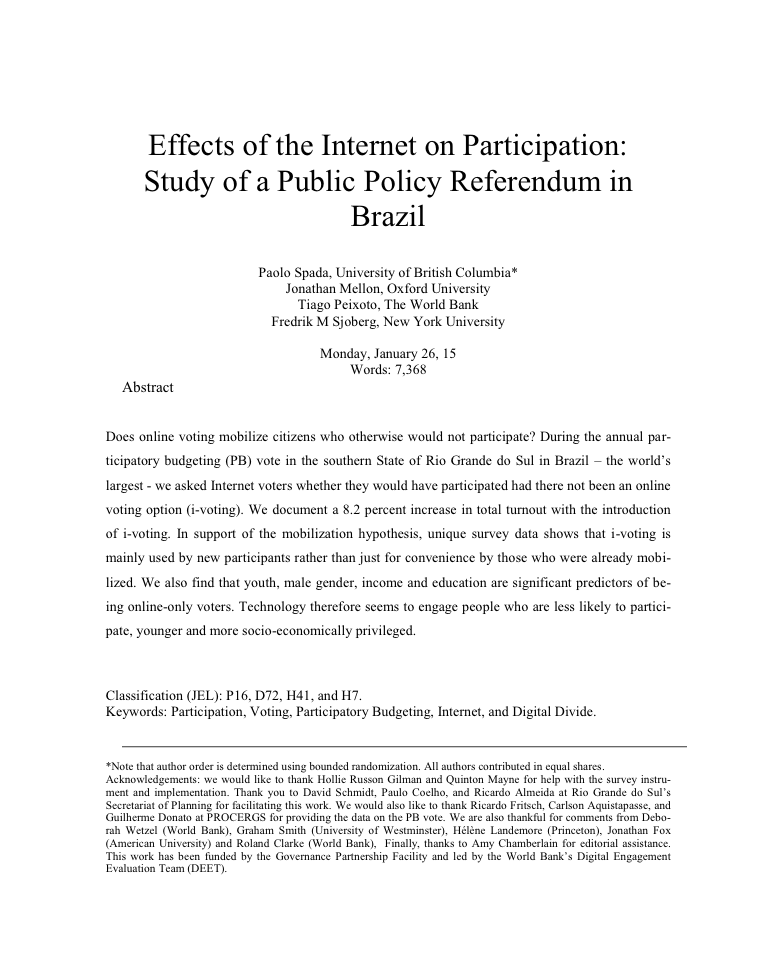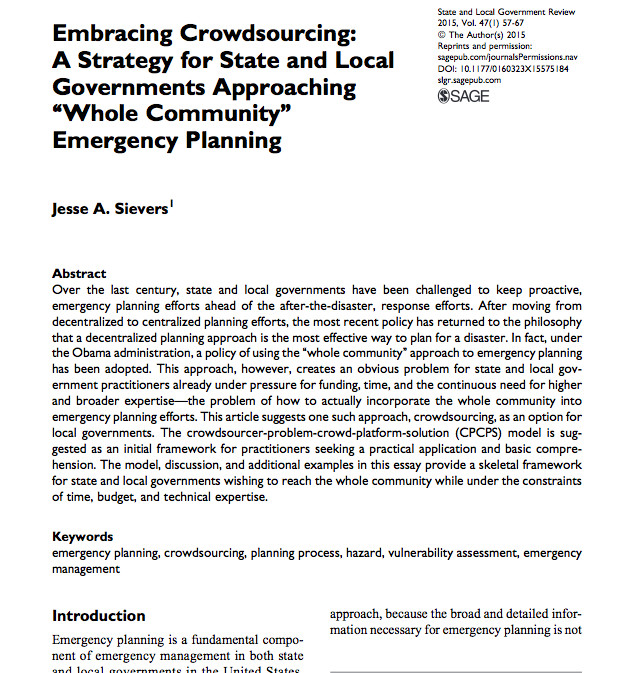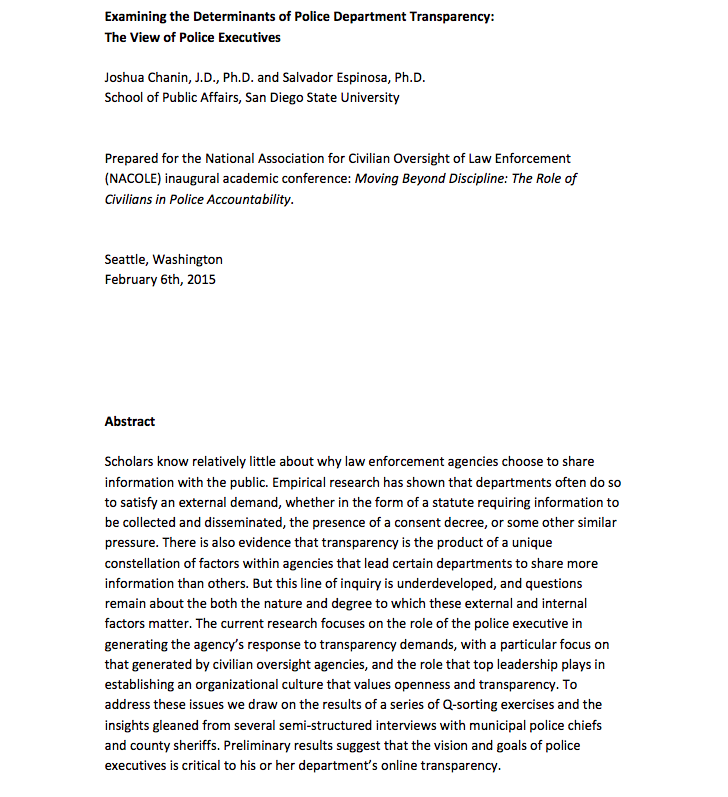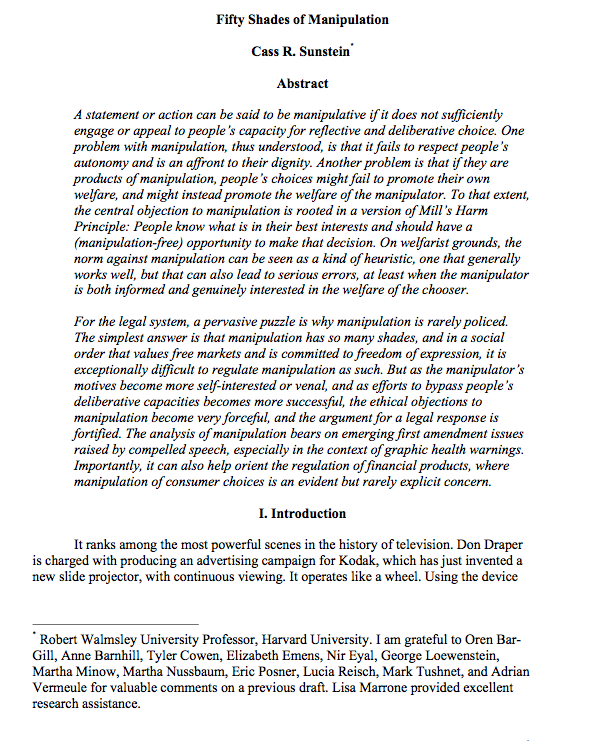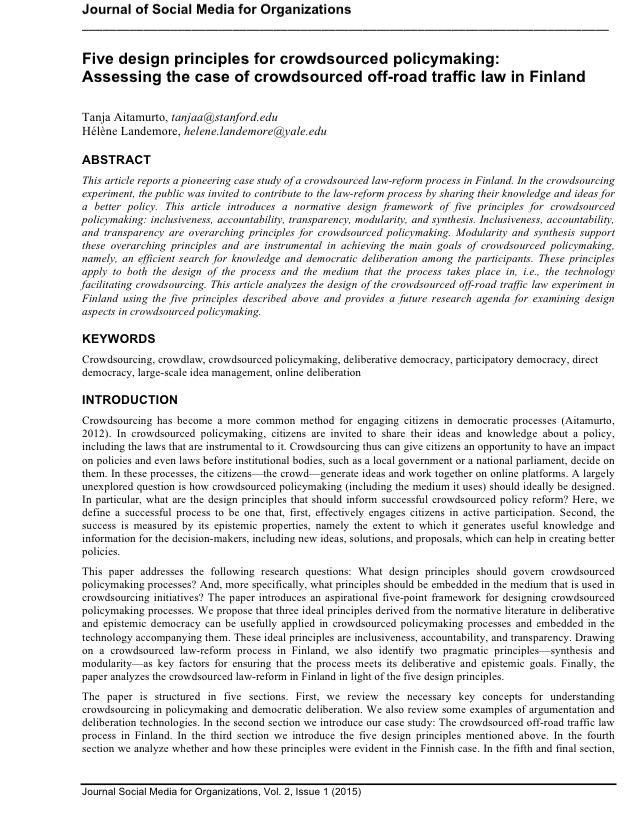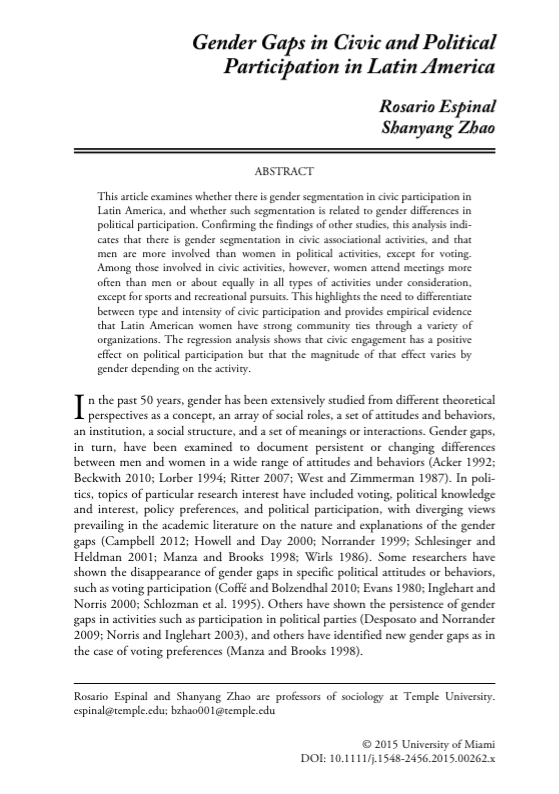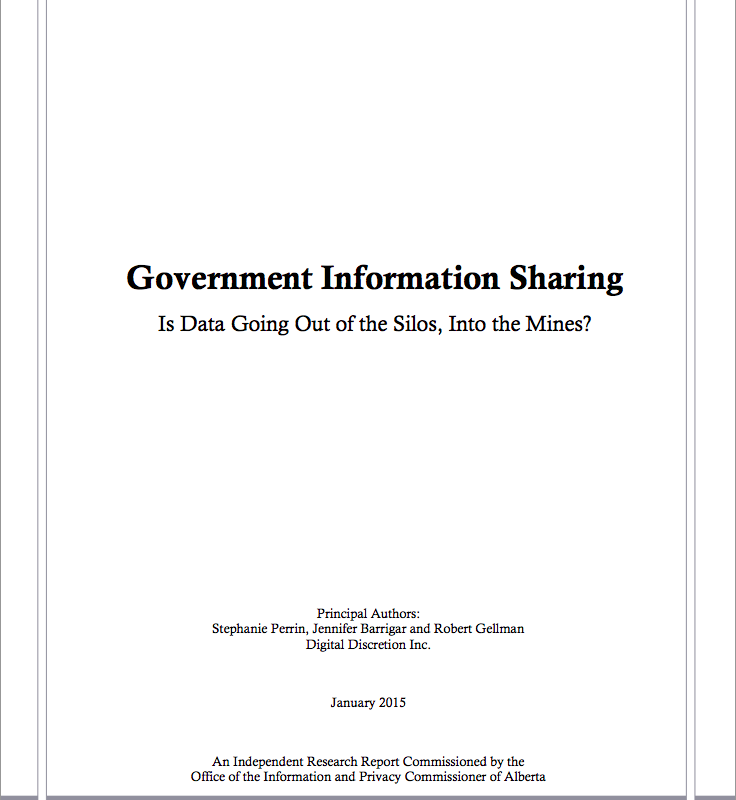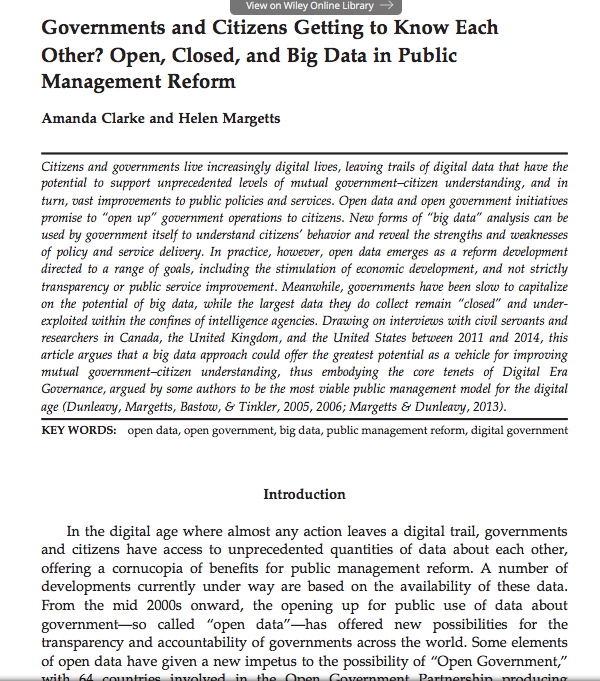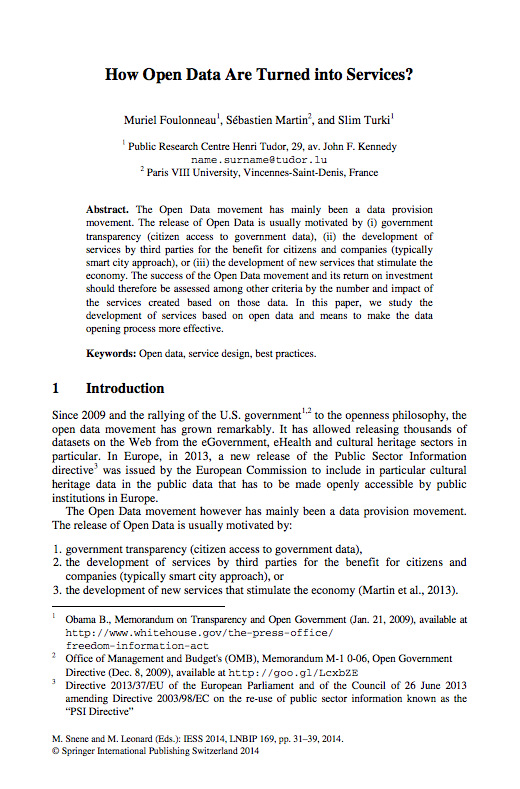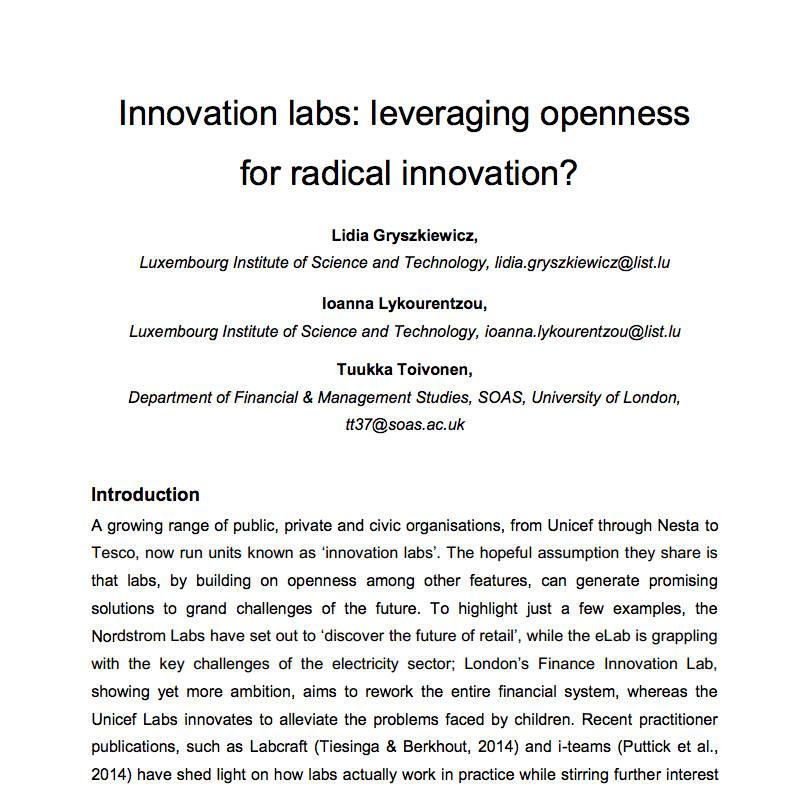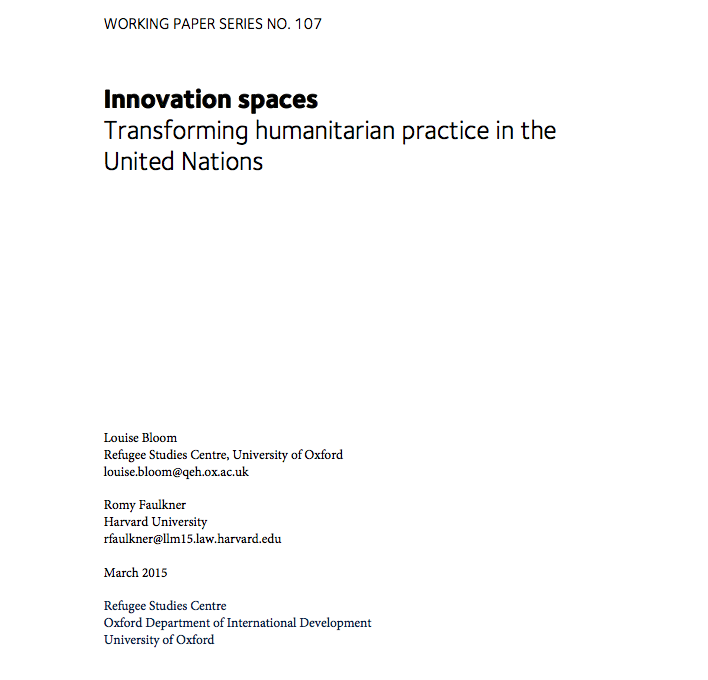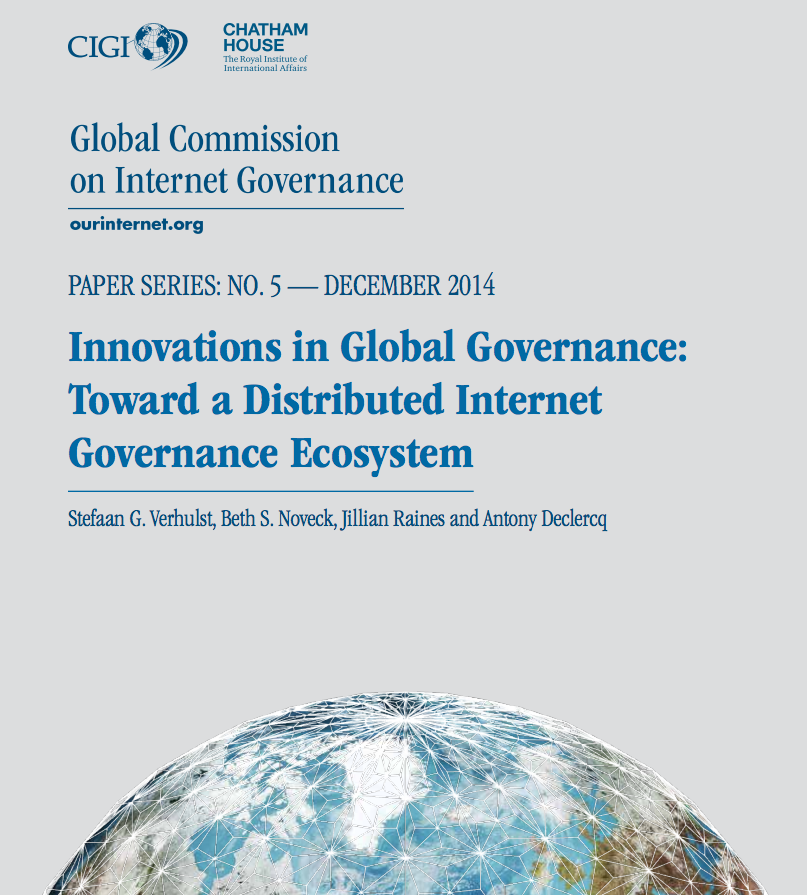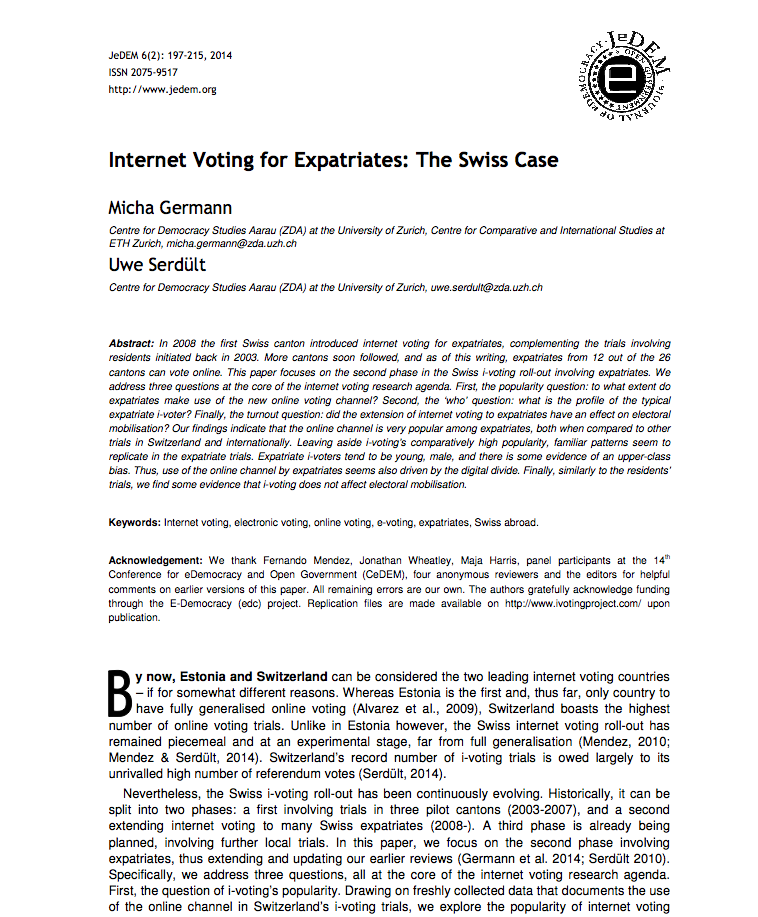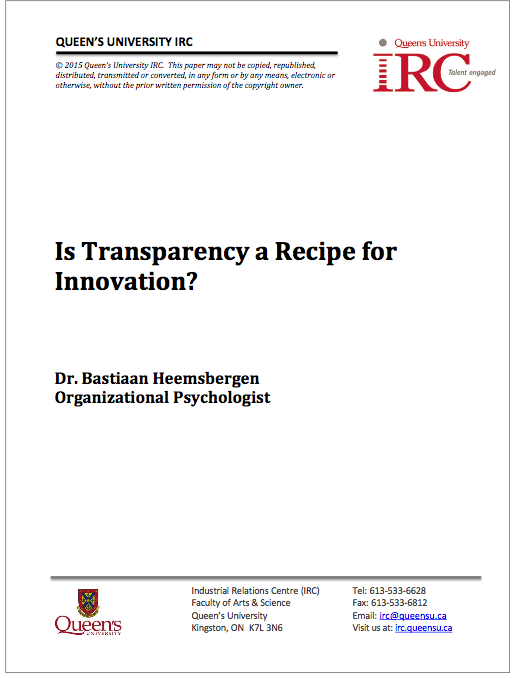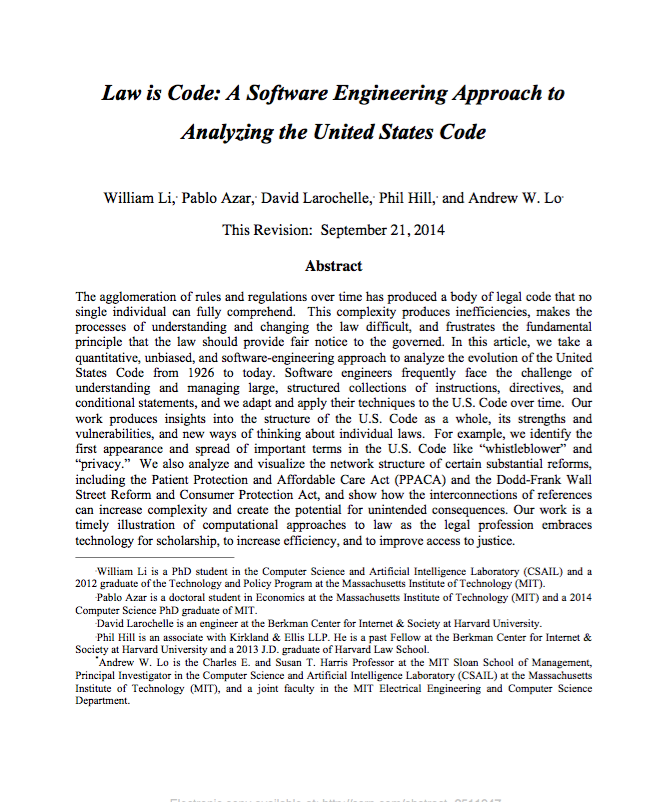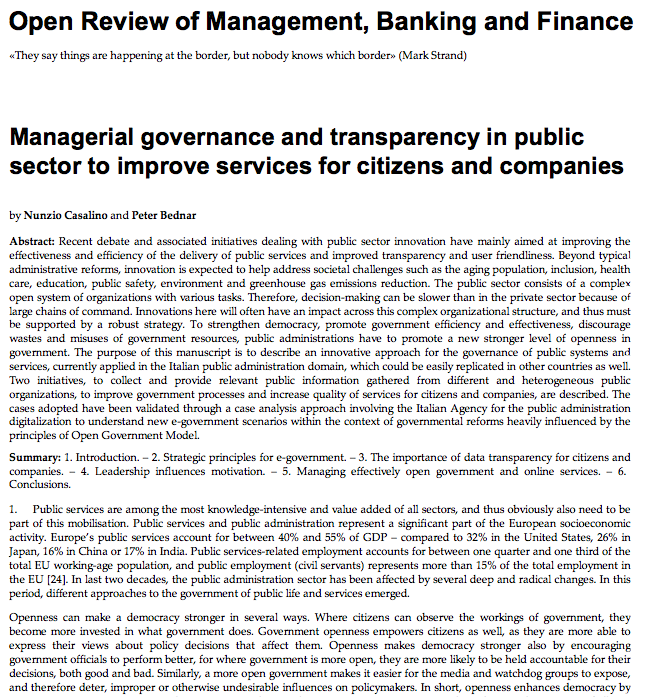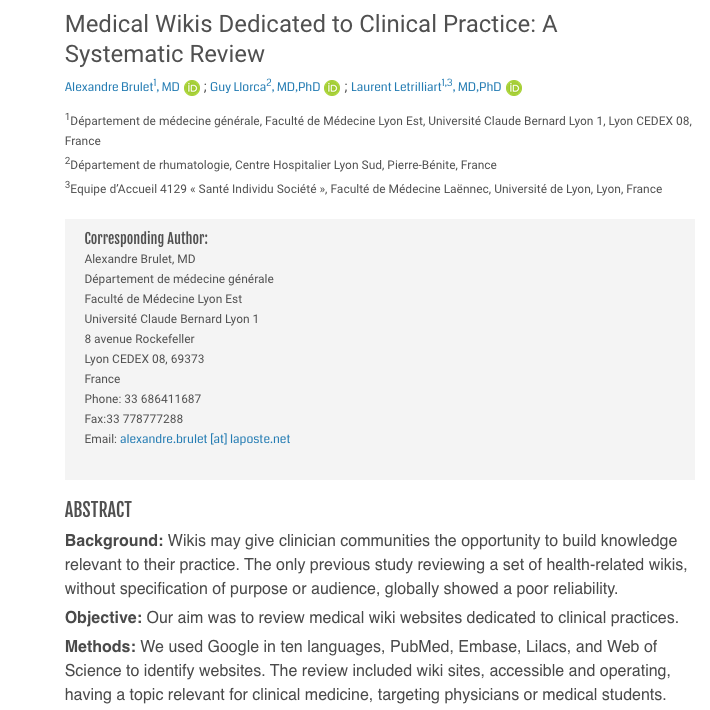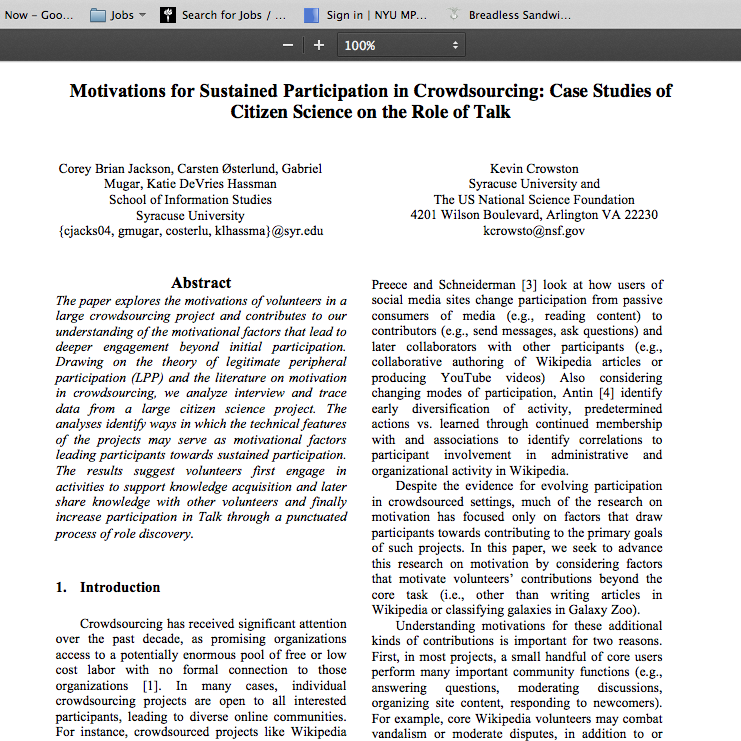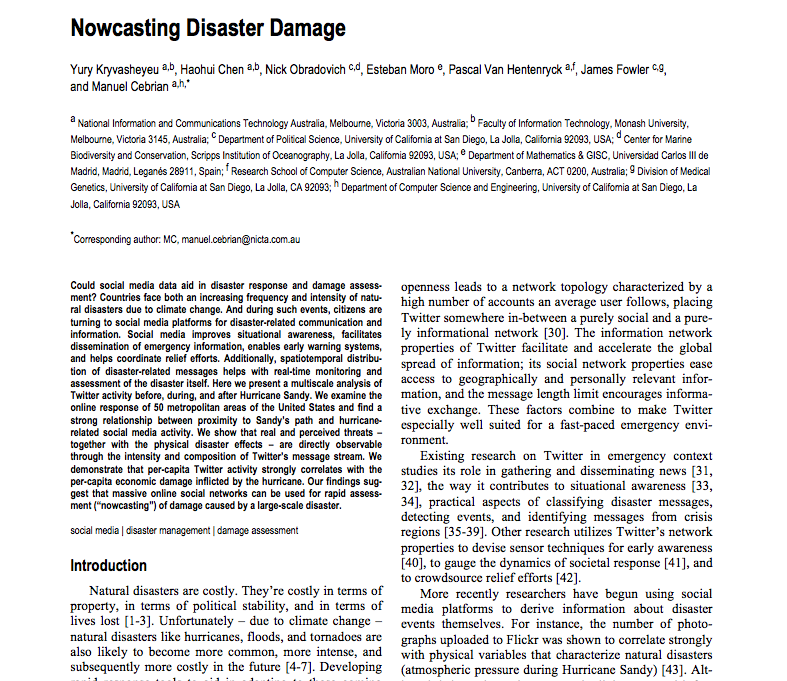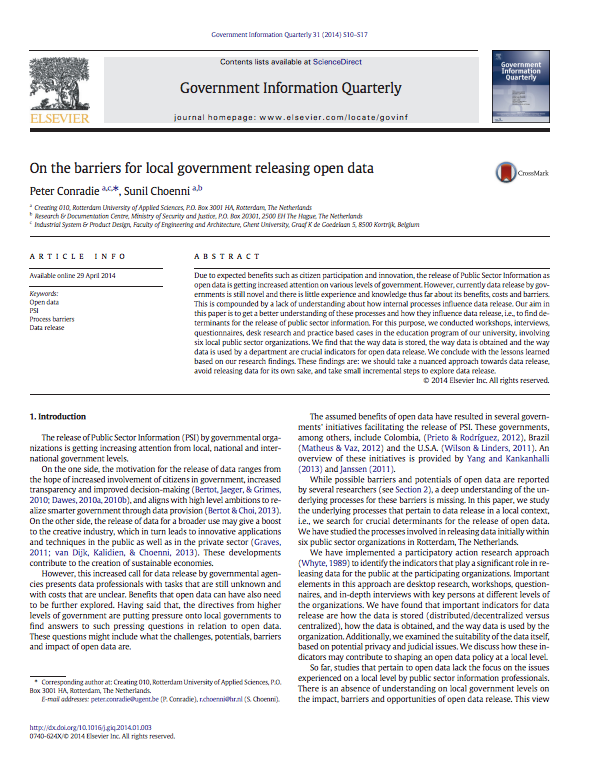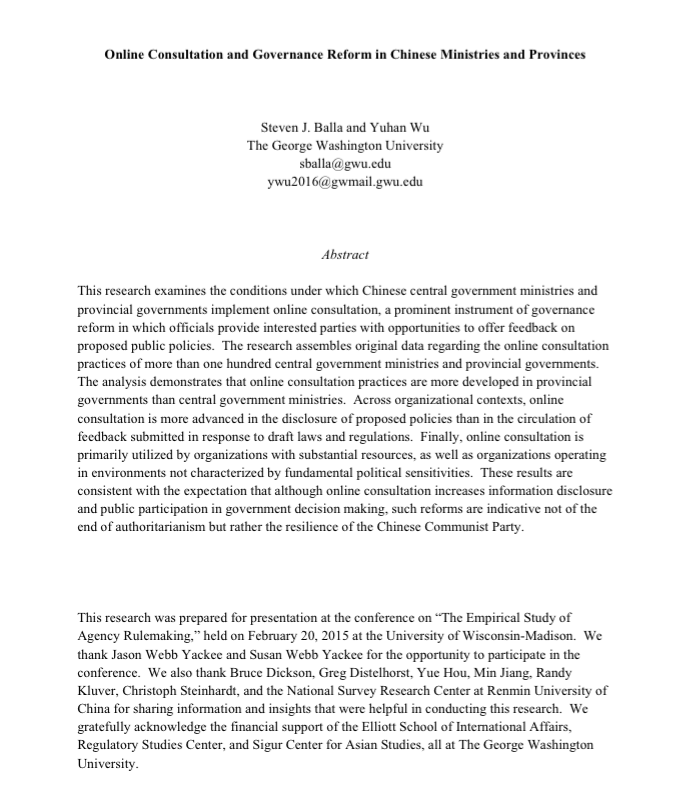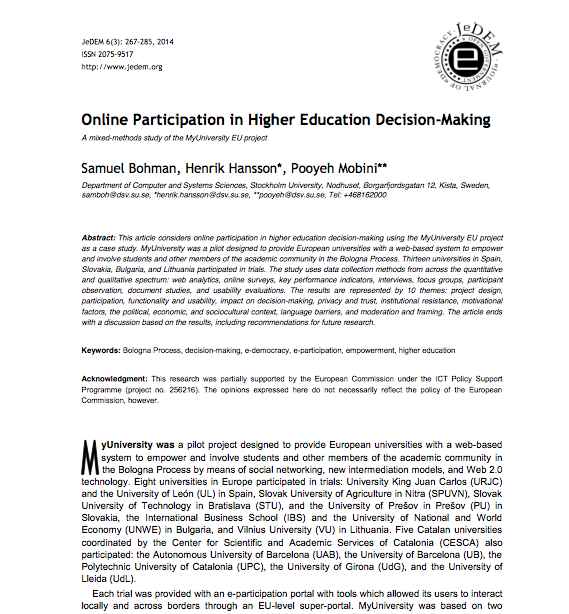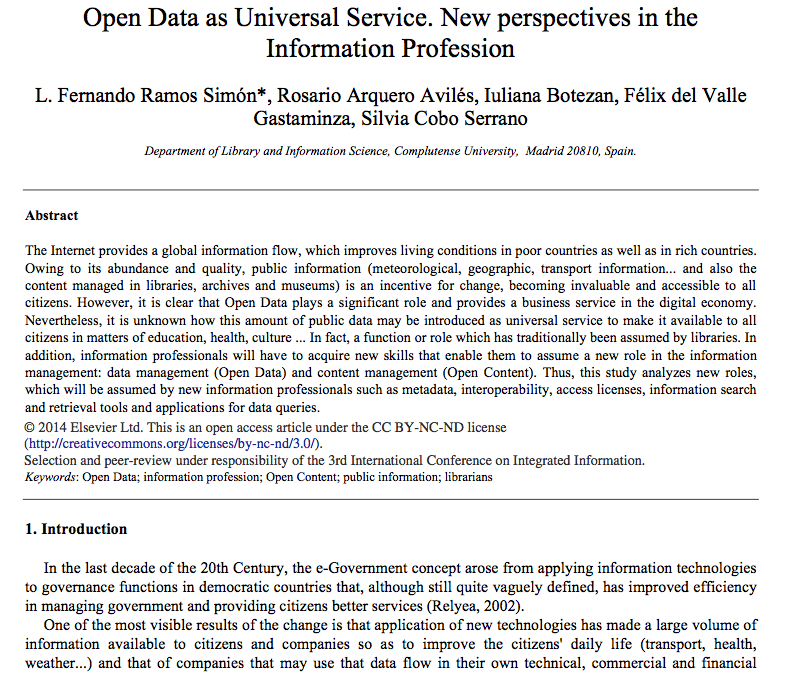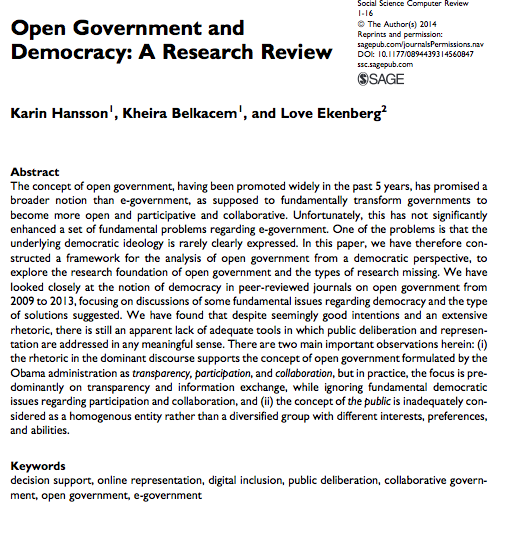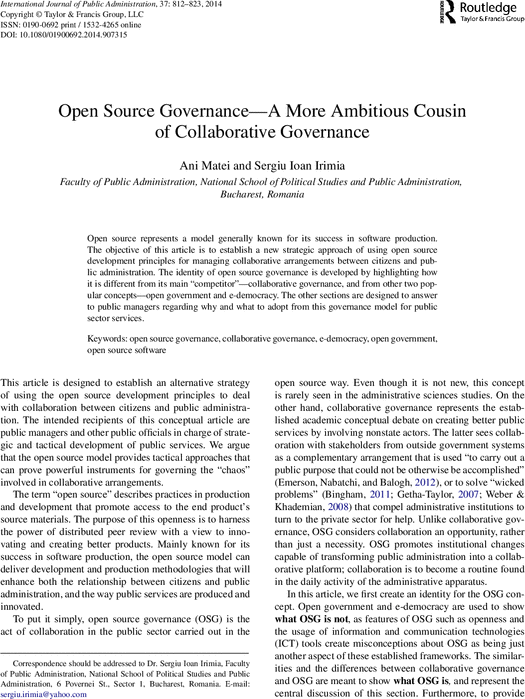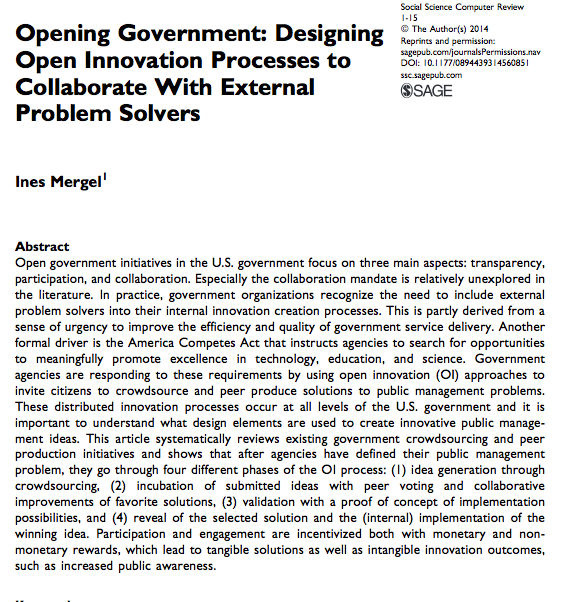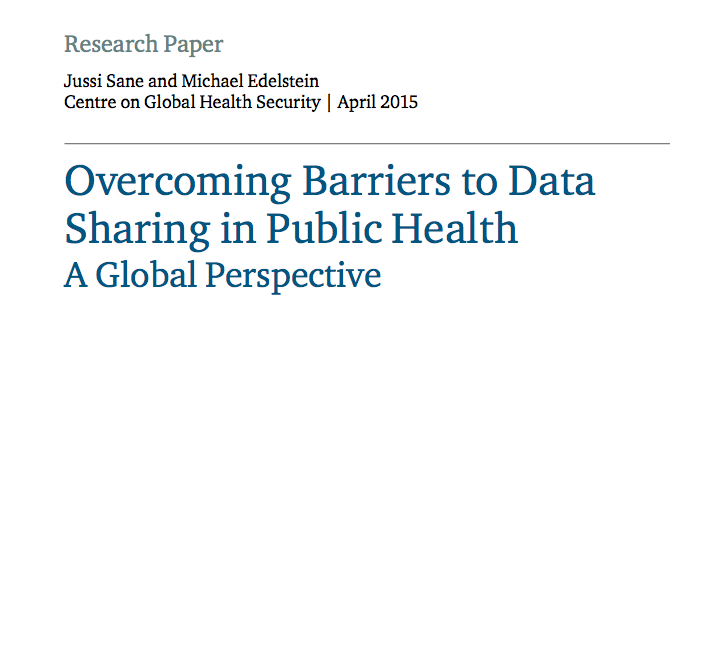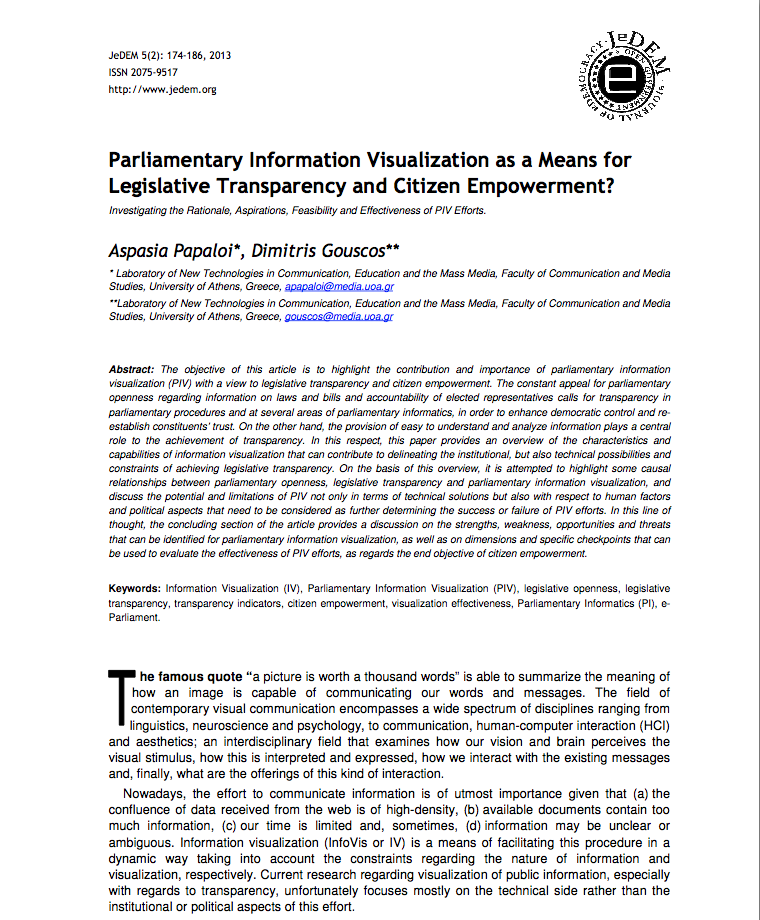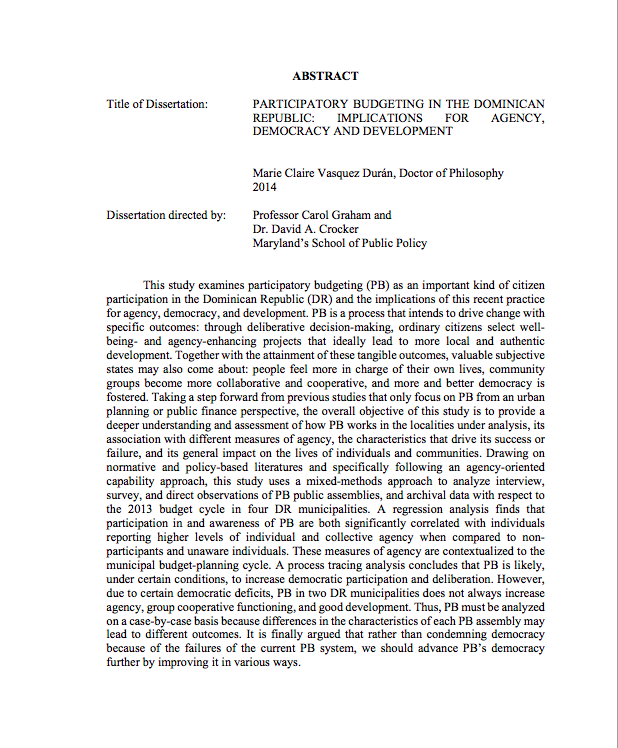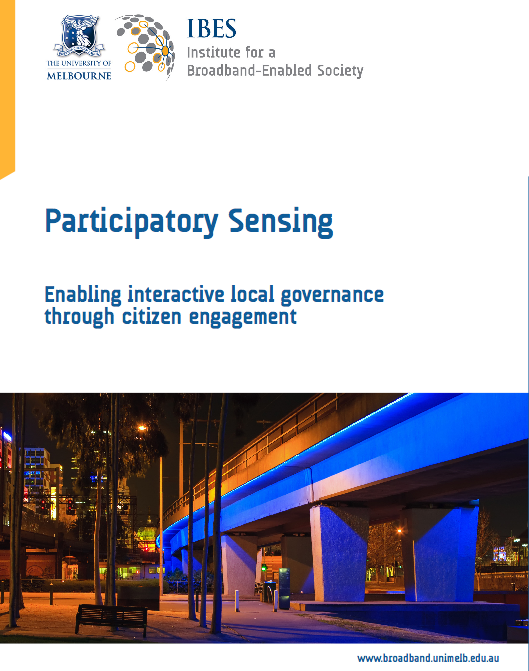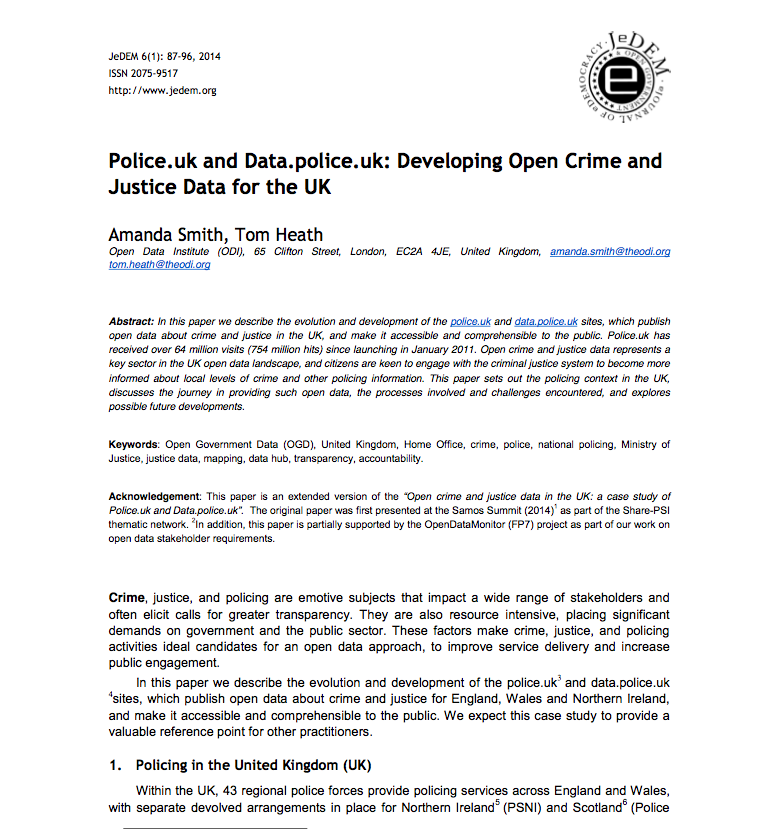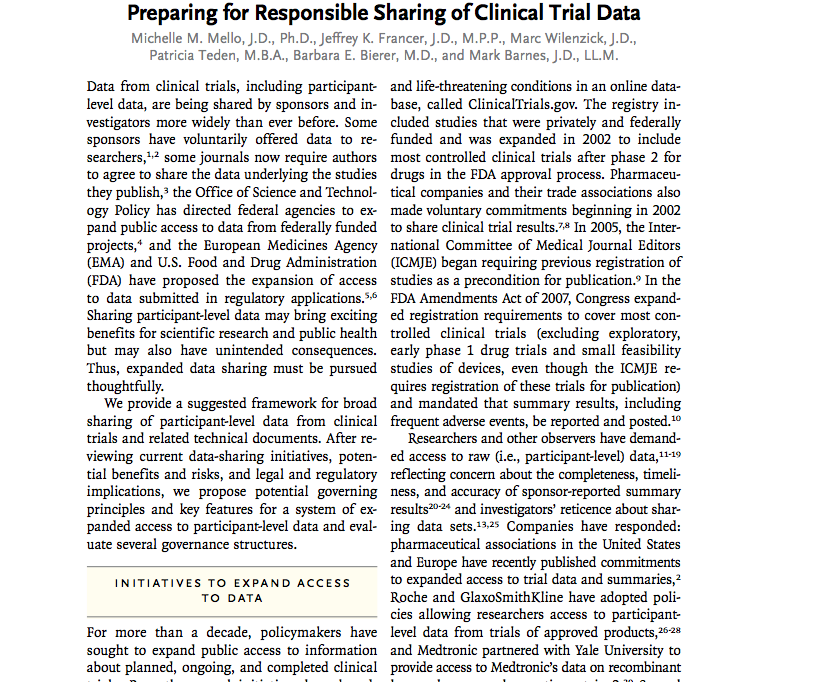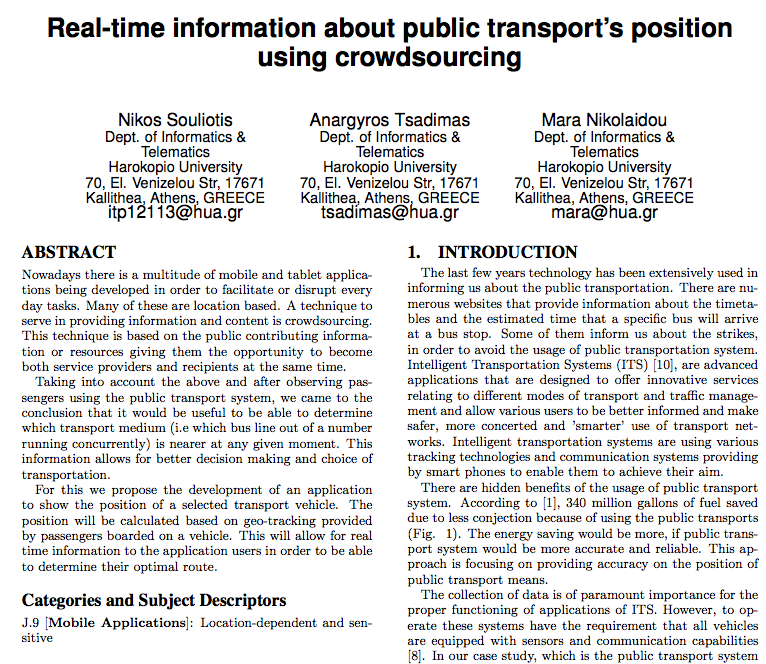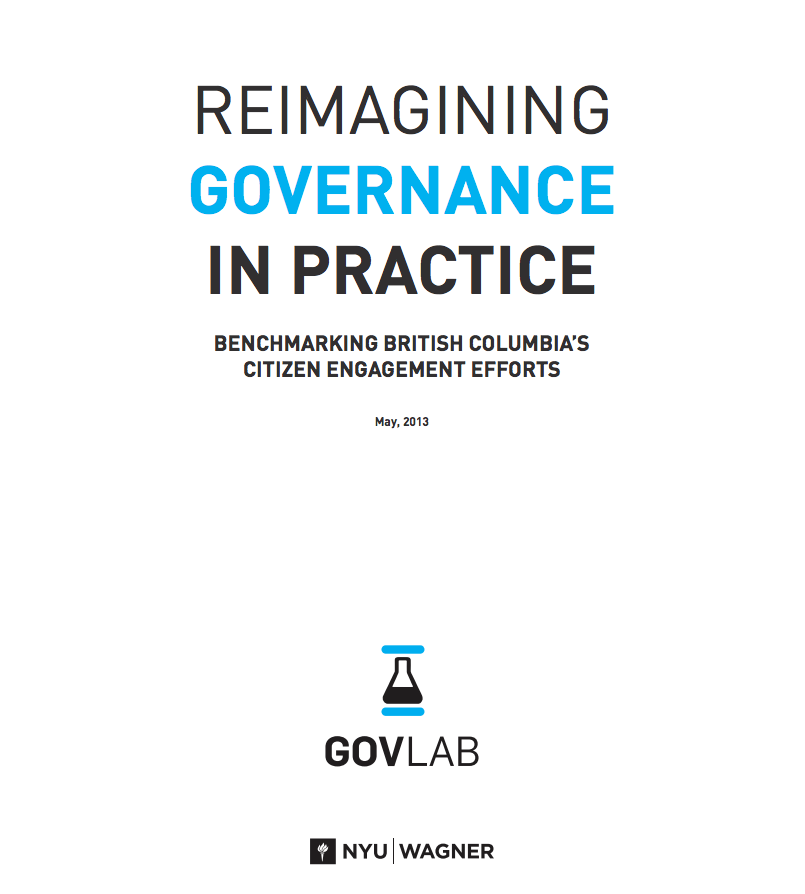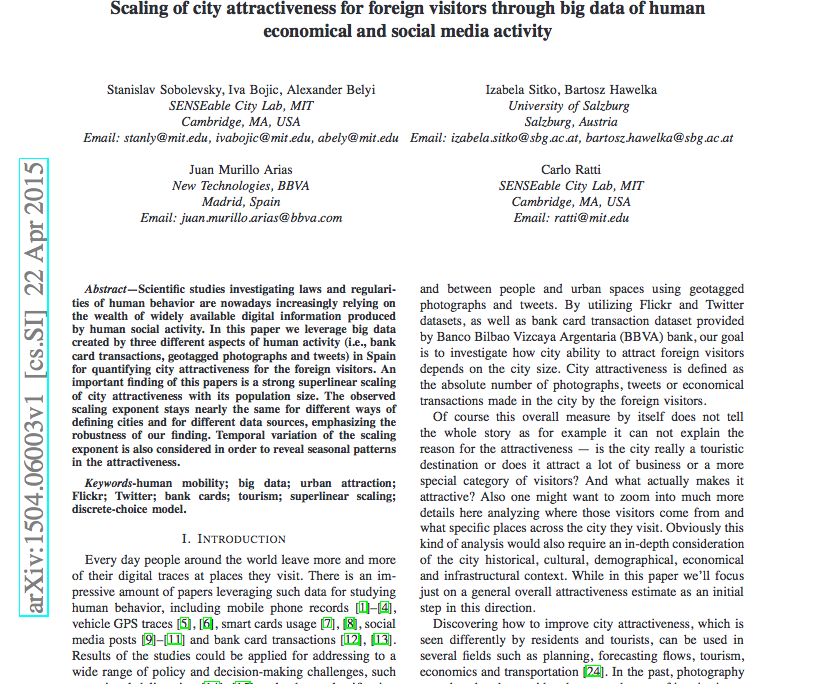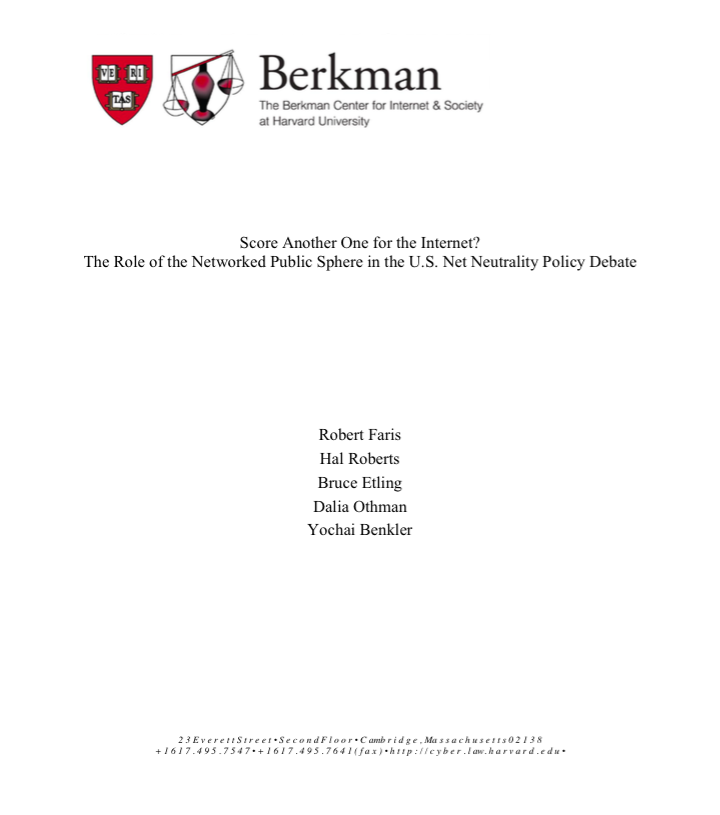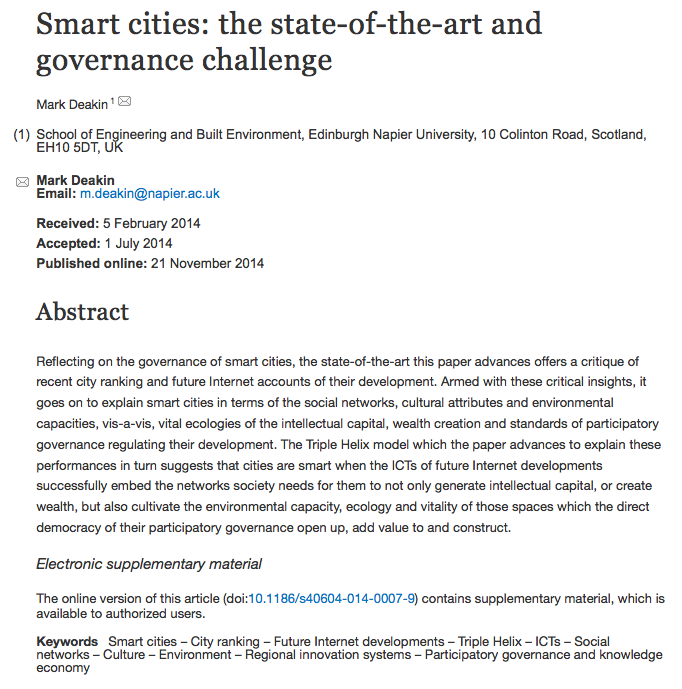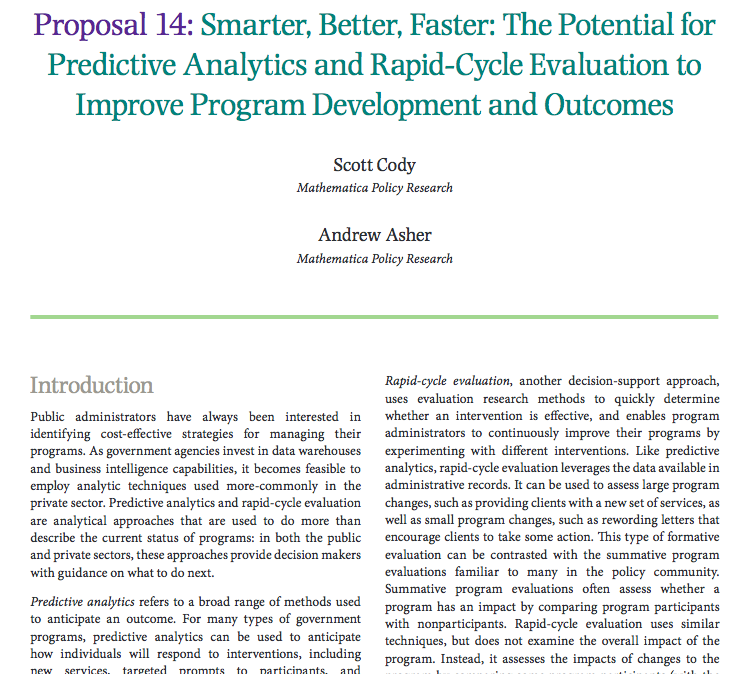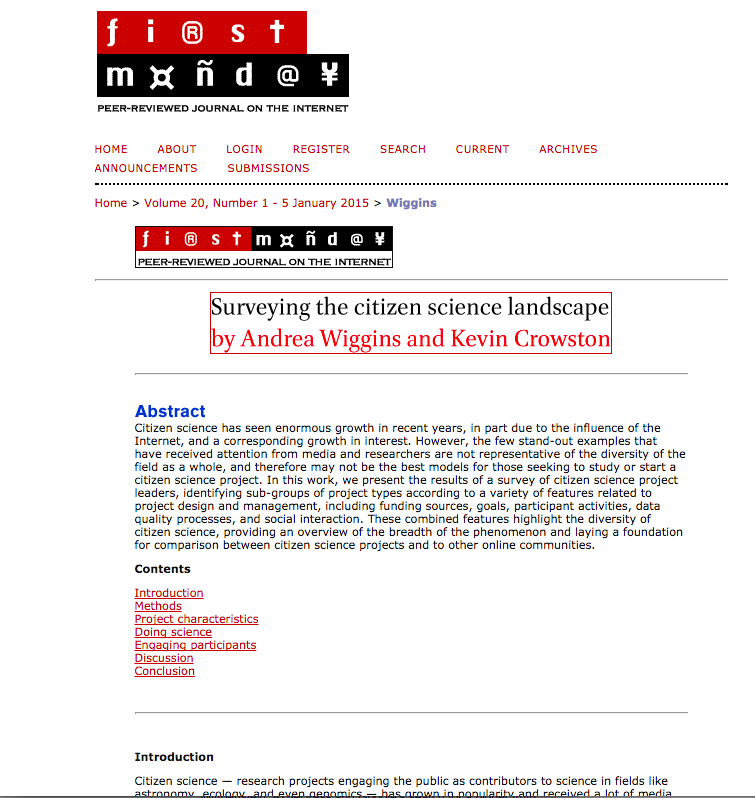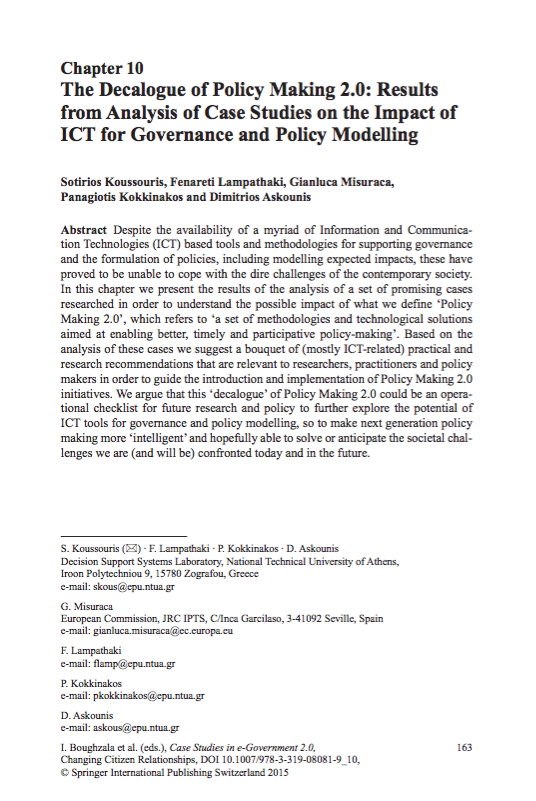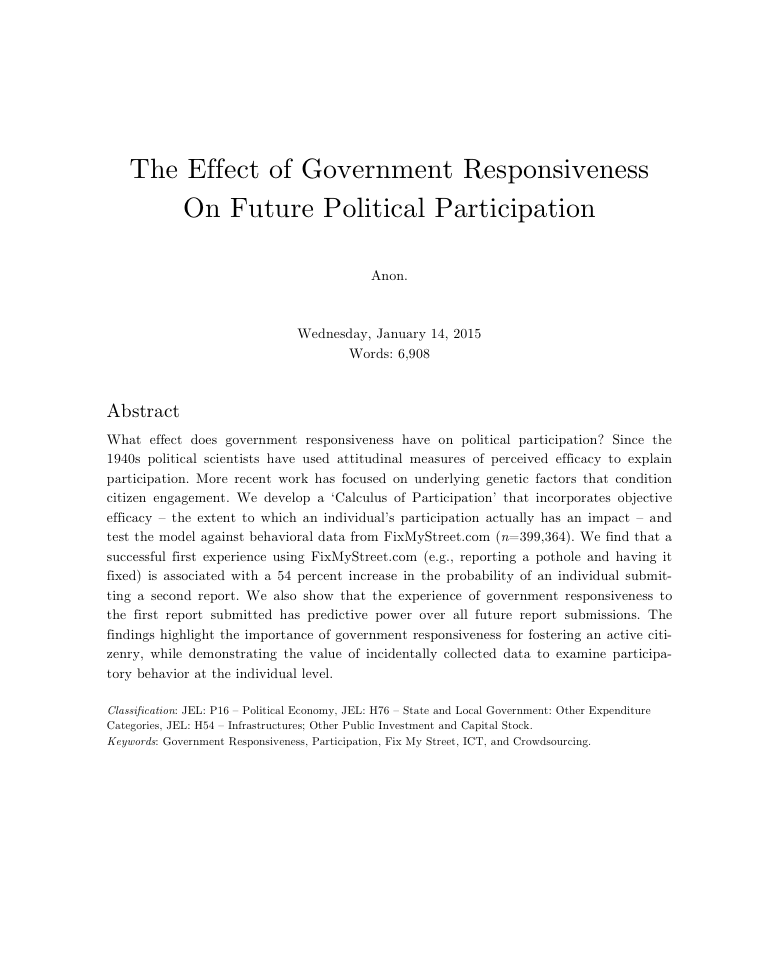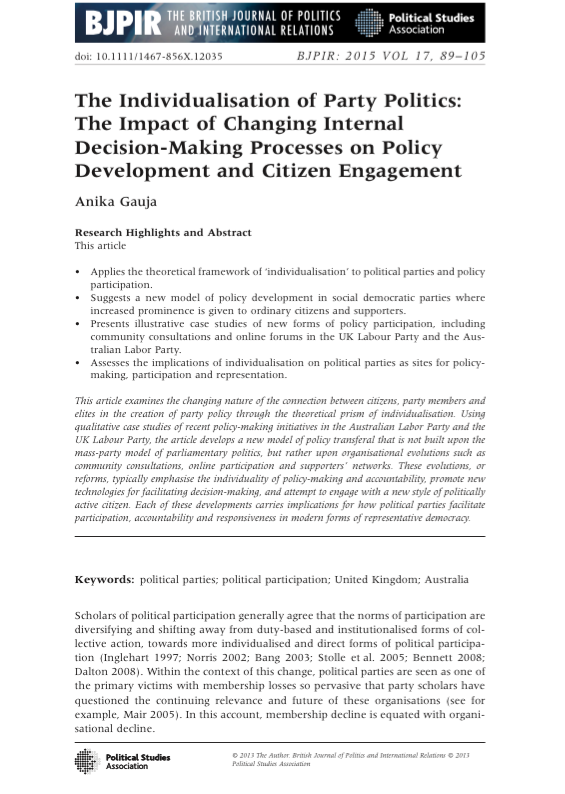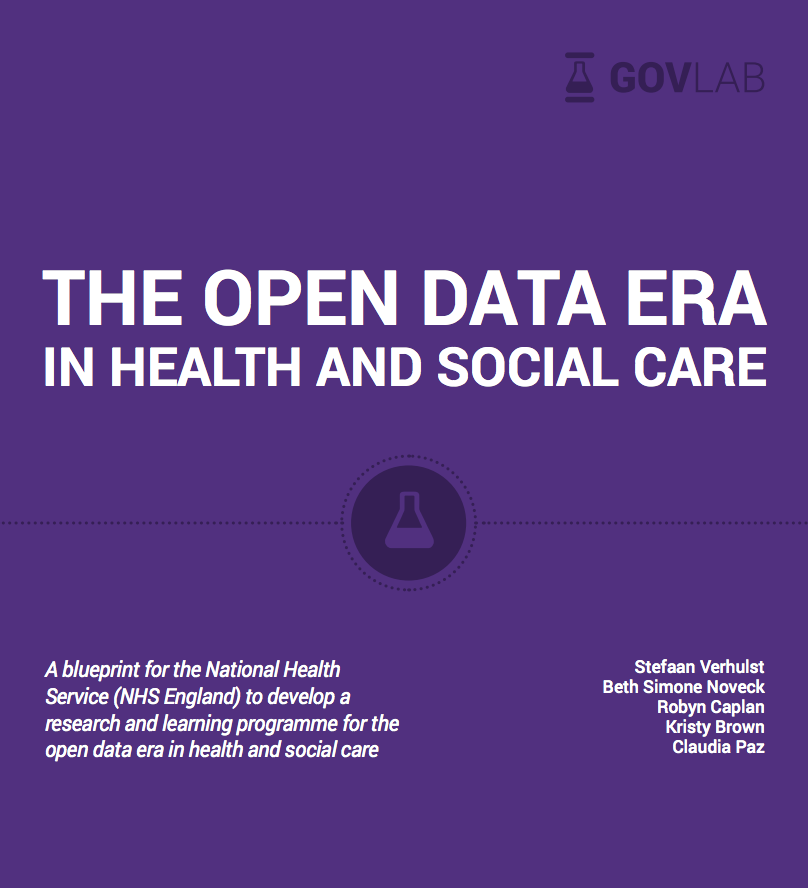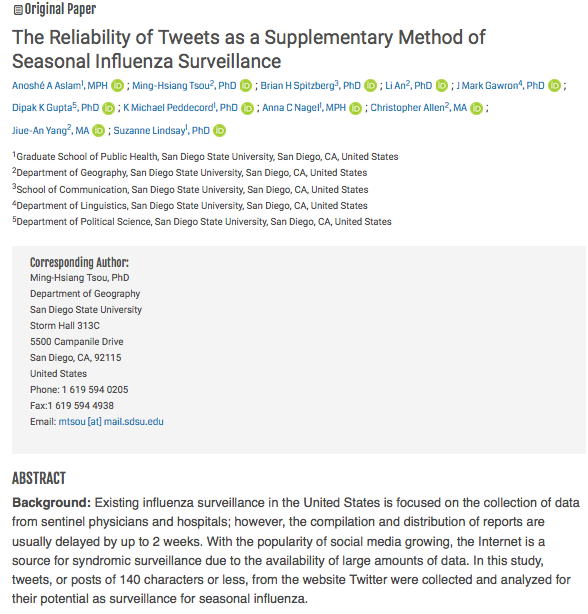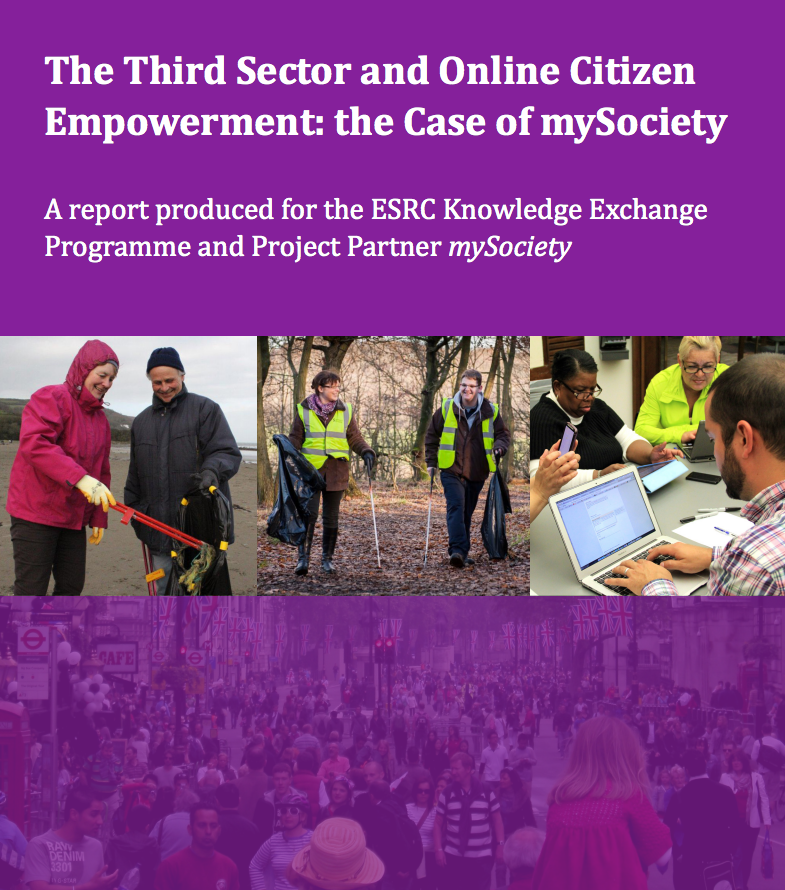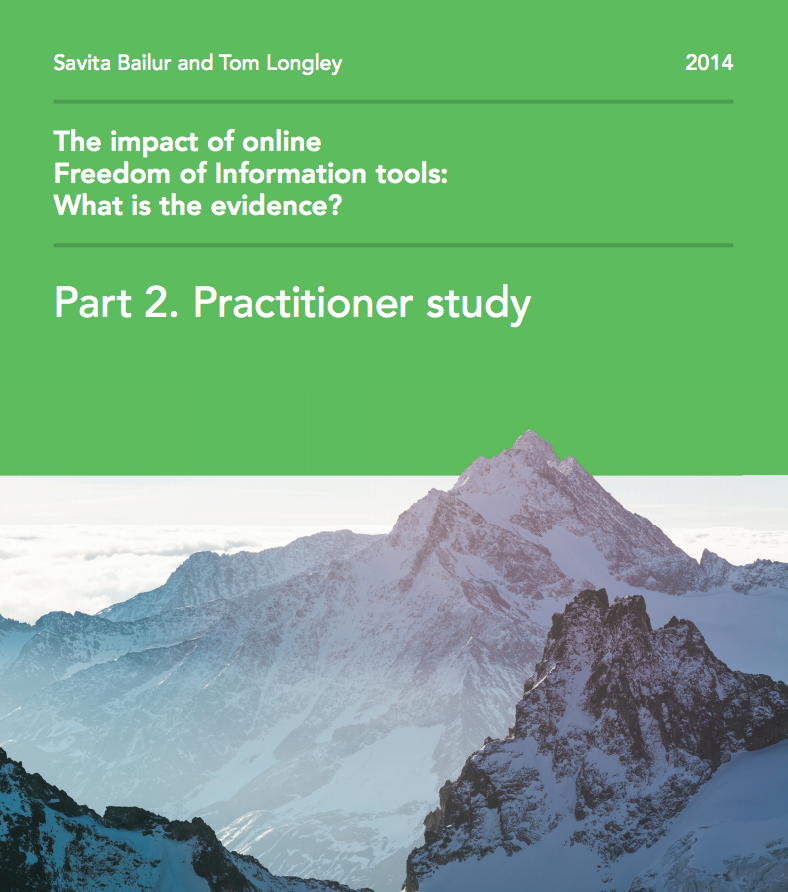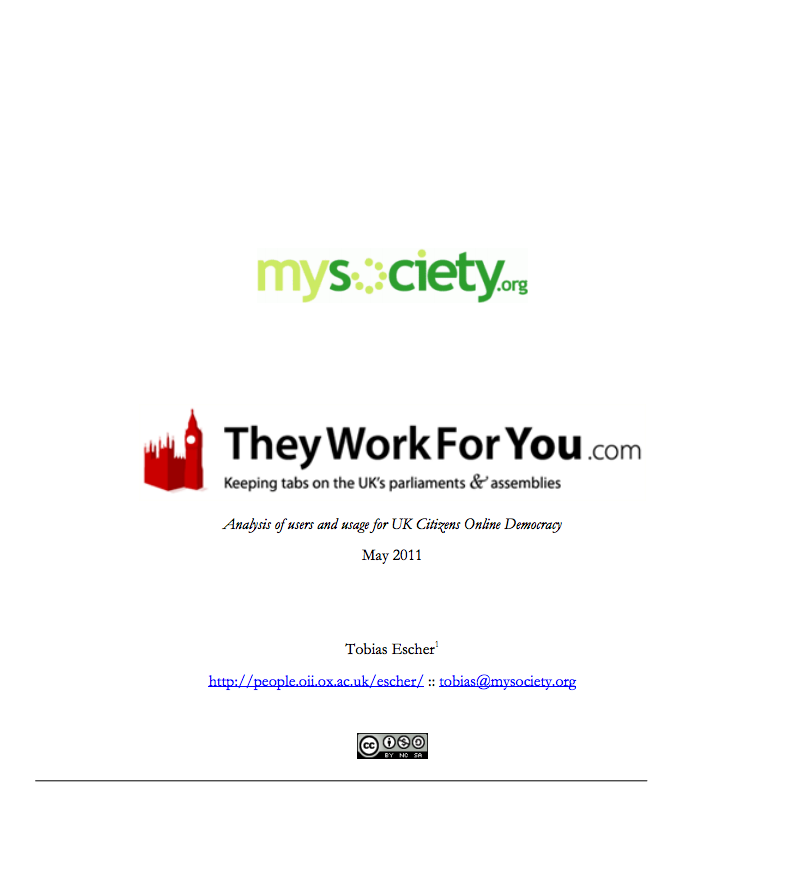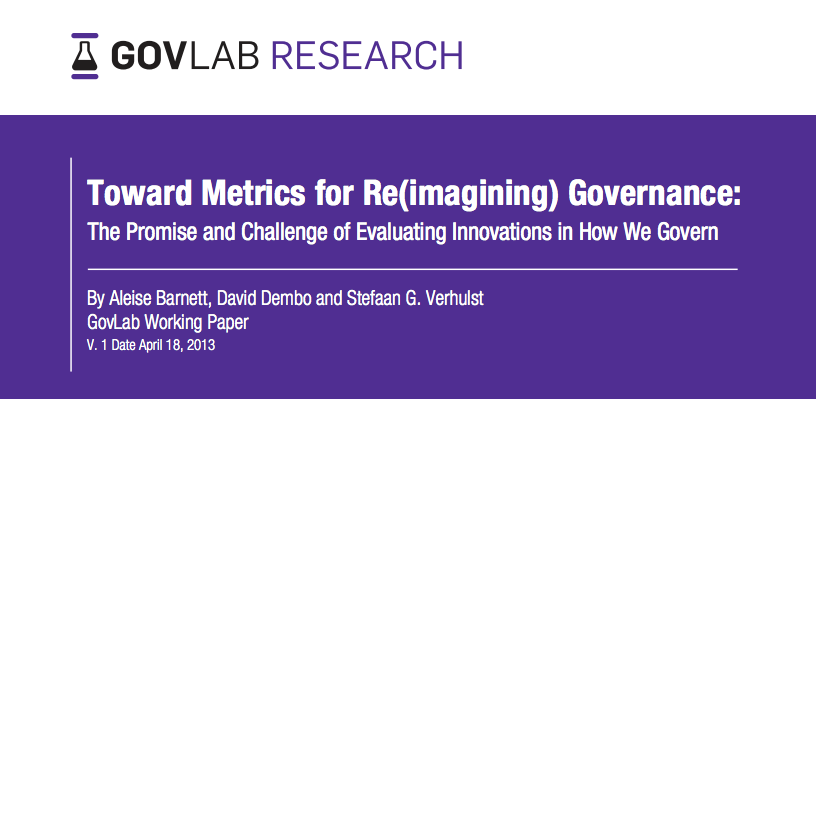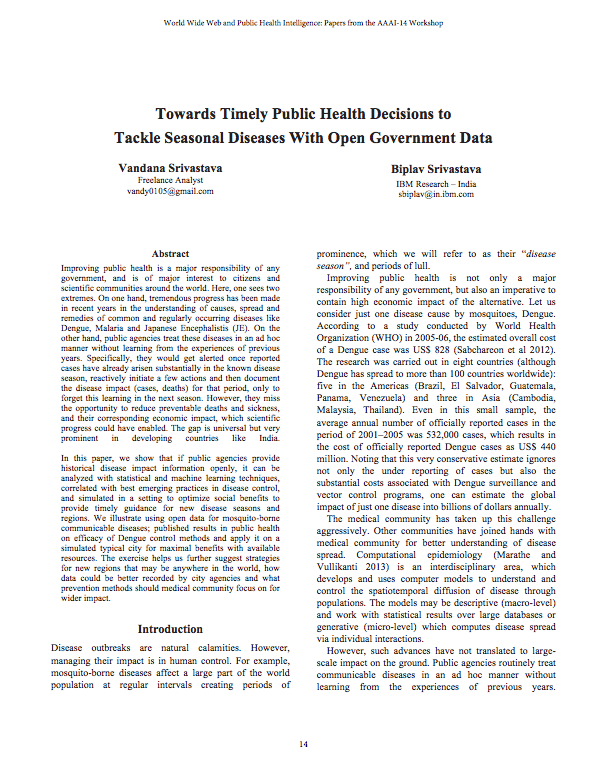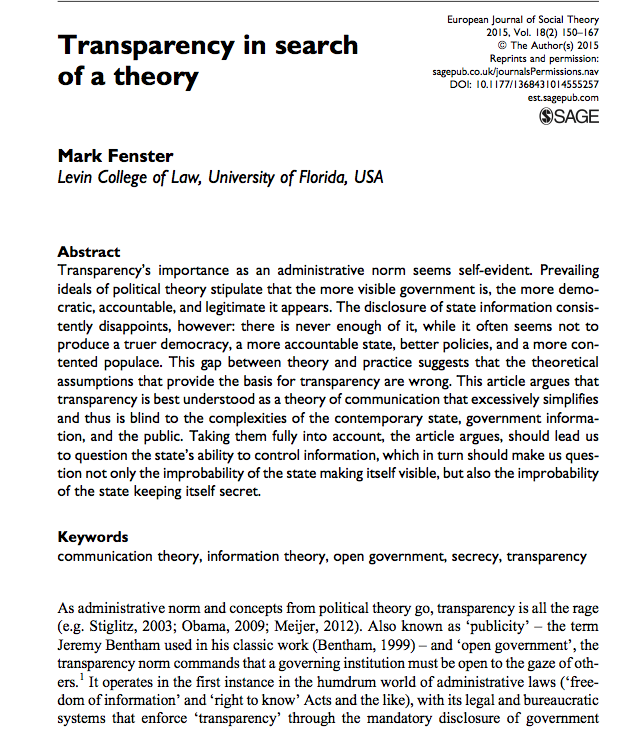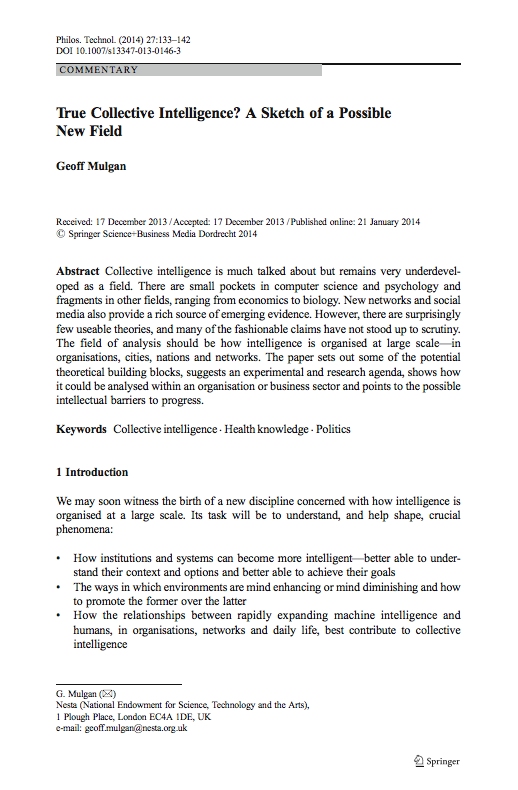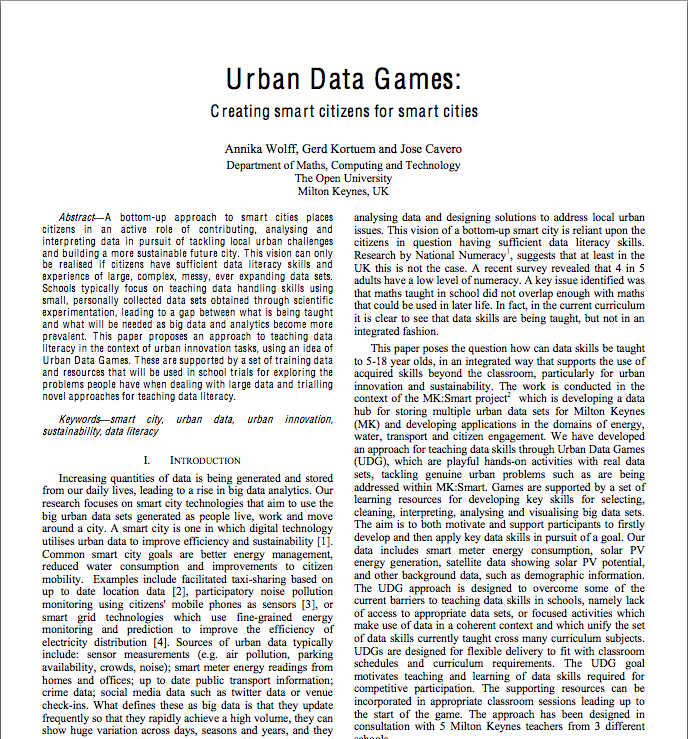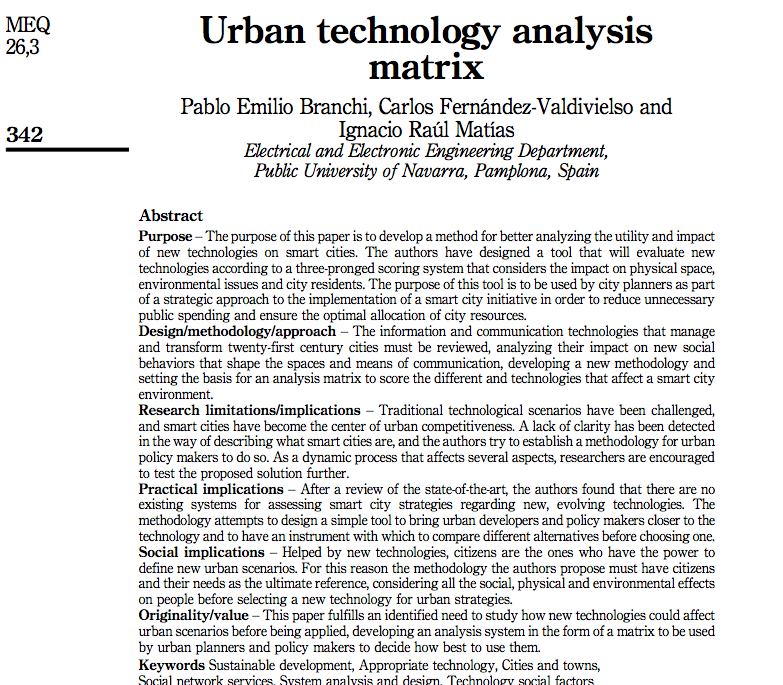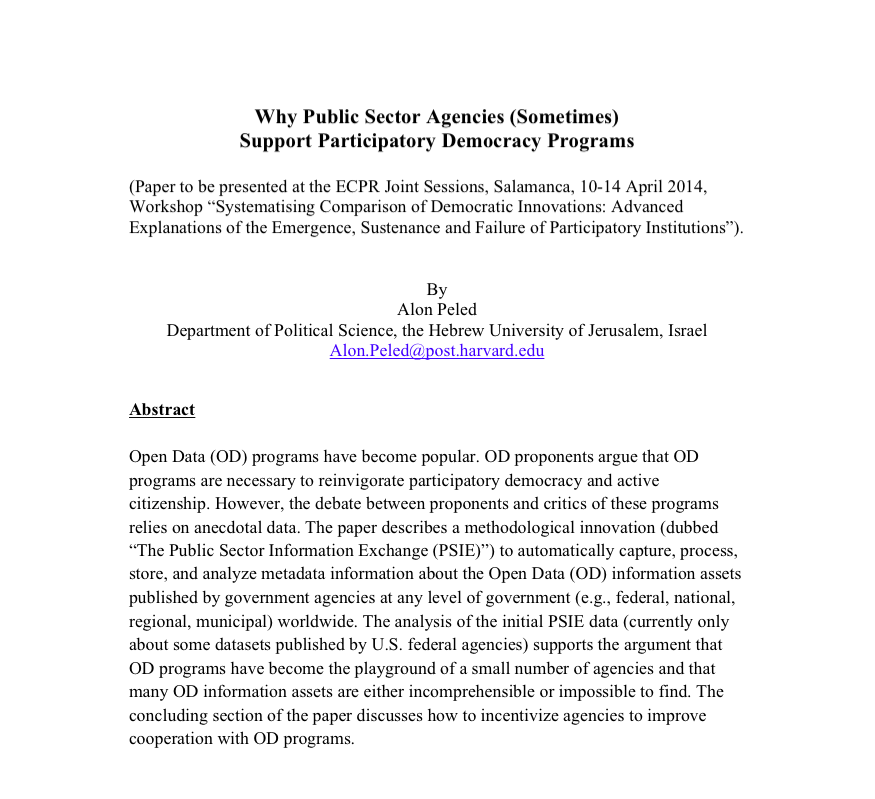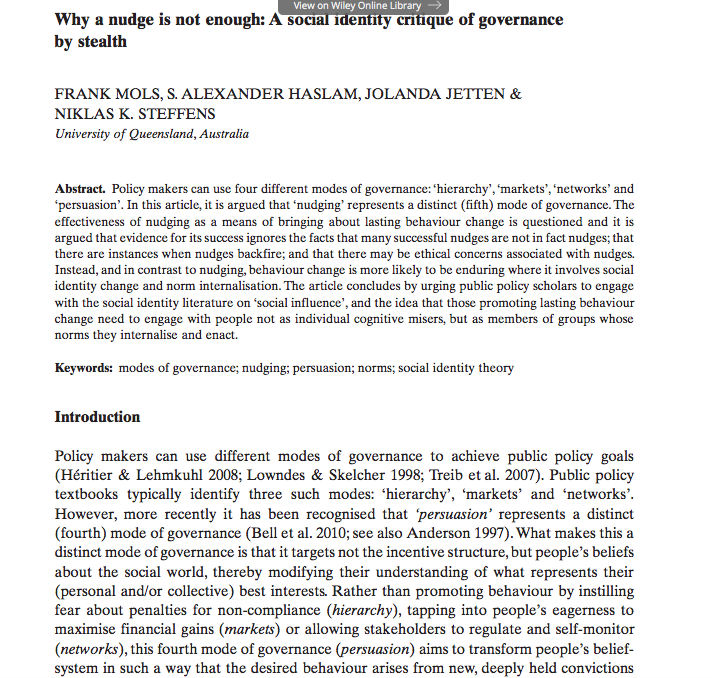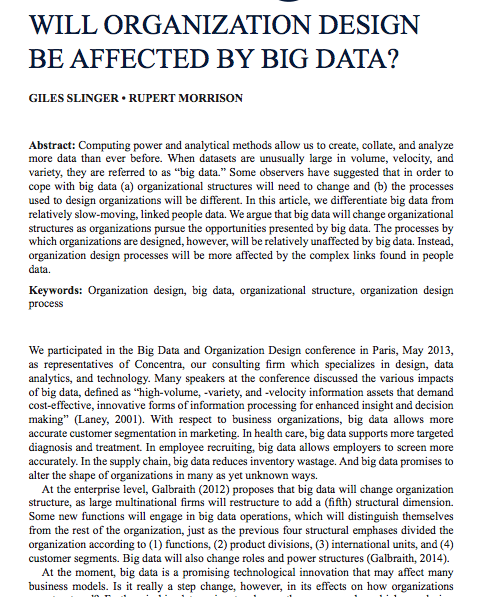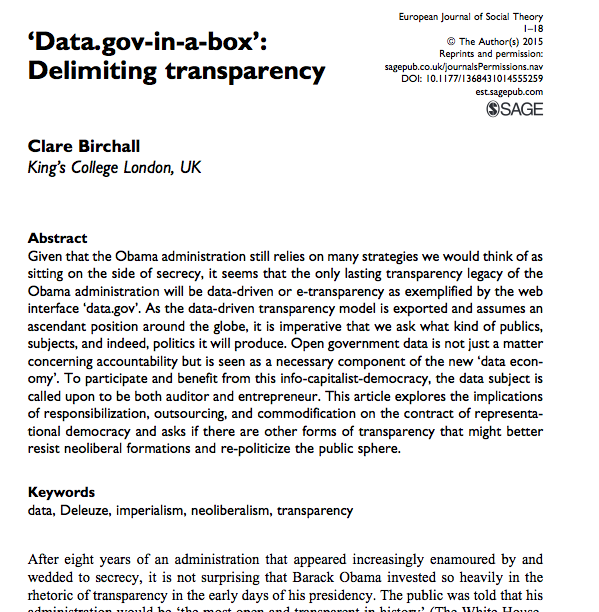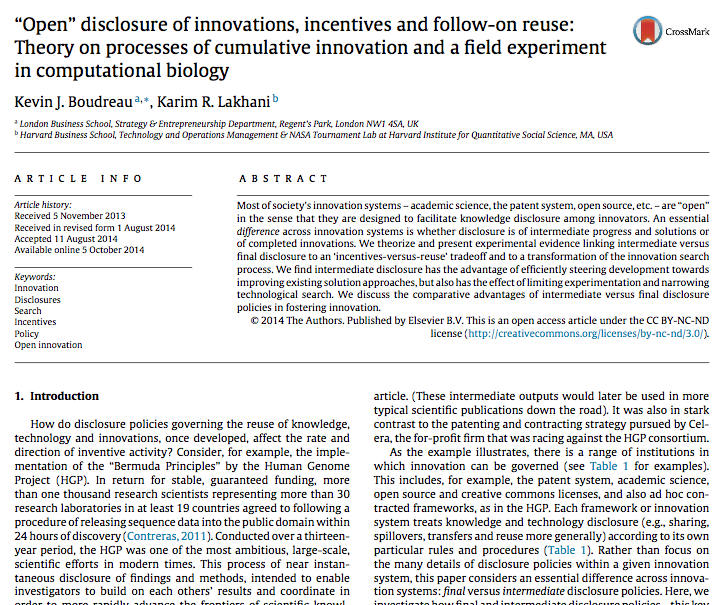-
Business Models for Open Innovation: Matching Heterogenous Open Innovation Strategies with Business Model Dimensions
-
A New Source of Data for Public Health Surveillance: Facebook Likes
-
A New Taxonomy of Smart City Projects
-
A Platform for Closing the Open Data Feedback Loop Based on Web2.0 Functionality
-
A Process Model for Crowdsourcing Design: A Case Study in Citizen Science
-
A micro-democratic perspective on crowd-work
-
A sentiment analysis of U.S. local government tweets: The connection between tone and citizen involvement
-
A taxonomy of crowdsourcing based on task complexity
-
An In-Depth Analysis of Open Data Portals as an Emerging Public E-Service
-
Assessing Social Value in Open Data Initiatives: A Framework
-
Behavioral Political Economy: A Survey
-
Benchmarking open government: An open data perspective
-
Beyond just politics: A systematic literature review of online participation
-
Big Data from the bottom up
-
Big Data: Google Searches Predict Unemployment in Finland
-
Breaking Public Administrations’ Data Silos
-
Brief survey of crowdsourcing for data mining
-
Can 311 Call Centers Improve Service Delivery? Lessons from New York and Chicago
-
Can Bottom-Up Institutional Reform Improve Service Delivery?
-
Cities’ Open Government Data Heart Beat
-
Citizen Involvment in Local Environmental Governance: A Methodology Combining Human-Centered Design and Living Lab Approaches
-
Citizen Science for Citizen Access to Law
-
Citizen Science: The Law and Ethics of Public Access to Medical Big Data
-
Citizen-Centered Government: The Mayor's Office of New Urban Mechanics and the Evolution of CRM in Boston
-
Citizens' Use of New Media in Authoritarian Regimes: A Case Study of Uganda
-
Codifying Collegiality: Recent Developments in Data Sharing Policy in the Life Sciences
-
Collaborative approaches to public sector innovation: A scoping study
-
Collective Intelligence or Group Think? Engaging Participation Patterns in World without Oil
-
Competition-Based Innovation: The Case of the X Prize Foundation
-
Competition-Based Innovation: The Case of the X Prize Foundation
-
Conceptualizing Open Data ecosystems: A timeline analysis of Open Data development in the UK
-
Creating a national citizen engagement process for energy policy
-
Crowd-Sourcing Corruption: What Petrified Forests, Street Music, Bath Towels and the Taxman Can Tell Us About the Prospects for Its Future
-
Crowdsourced earthquake early warning
-
Crowdsourcing Dilemma
-
Crowdsourcing Parking Lot Occupancy using a Mobile Phone Application
-
Crowdsourcing Pedestrian and Cyclist Activity Data
-
Crowdsourcing and regulatory reviews: A new way of challenging red tape in British government?
-
Crowdsourcing as a tool for political participation? – the case of Ugandawatch
-
Crowdsourcing medical expertise in near real time
-
Crowdteaching: Supporting Teaching as Designing in Crowdsourcing Communities
-
Data democracy - increased supply of geospatial information and expanded participatory processes in the production of data
-
Data democracy increased supply of geospatial information and expanded participatory processes in the production of data
-
Designing an Online Civic Engagement Platform: Balancing “More” vs. “Better” Participation in Complex Public Policymaking
-
Developing Together: Investigating best practices for community development and public consultation
-
Do Experts or Collective Intelligence Write with More Bias? Evidence from Encyclopaedia Britannica and Wikipedia
-
Does Crowdsourcing Legislation Increase Political Legitimacy? The Case of Avoin Ministeri in Finland
-
Does Enclave Deliberation Polarize Opinions?
-
Does Participatory Budgeting Improve Decentralized Public Service Delivery?
-
Does Participatory Budgeting Improve Decentralized Public Service Delivery?
-
Does Twitter Increase Perceived Police Legitimacy?
-
Effects of the Internet on Participation: Study of a Public Policy Referendum in Brazil
-
Embracing Crowdsourcing: A Strategy for State and Local Governments Approaching “Whole Community” Emergency Planning
-
Examining the Determinants of Police Department Transparency: The View of Police Executives
-
Experiments on Crowdsourcing Policy Assessment
-
Exploration, Extraction and ‘Rawification’. The Shaping of Transparency in the Back Rooms of Open Data
-
Fifty Shades of Manipulation
-
Five design principles for crowdsourced policymaking: Assessing the case of crowdsourced off-road traffic law in Finland
-
Gender Gaps in Civic and Political Participation in Latin America
-
Government Information Sharing: Is Data Going Out of the Silos, Into the Mines?
-
Governments and Citizens Getting to Know Each Other? Open, Closed, and Big Data in Public Management Reform
-
Habermas and the Garants : Narrowing the gap between policy and practice in French organisation – citizen engagement
-
How Open Data Are Turned into Services?
-
Innovation Contests
-
Innovation Labs: Leveraging Openness for Radical Innovation?
-
Innovation spaces: transforming humanitarian practice in the United Nations
-
Innovations in Global Governance: Towards a Distributed Internet Governance Ecosystem
-
Internet Voting for Expatriates: The Swiss Case
-
Is Transparency a Recipe for Innovation?
-
Law is Code: A Software Engineering Approach to Analyzing the United States Code
-
Managerial Governance and Transparency in Public Sector to Improve Services for Citizens and Companies
-
Managing Innovation in a Crowd
-
Medical Wikis Dedicated to Clinical Practice: A Systematic Review
-
Mind the Map: The Impact of Culture and Economic Affluence on Crowd-Mapping Behaviours
-
Motivations for sustained participation in crowdsourcing: The role of talk in a citizen science case study
-
Nowcasting Disaster Damage
-
On the barriers for local government releasing open data
-
Online Consultation and Governance Reform in Chinese Ministries and Provinces
-
Online Participation in Higher Education Decision-making
-
Open Data as Universal Service. New perspectives in the Information Profession
-
Open Government and Democracy: A Research Review
-
Open Source Governance—A More Ambitious Cousin of Collaborative Governance
-
Opening Government: Designing Open Innovation Processes to Collaborate With External Problem Solvers
-
Opening Health Data: What Do Researchers Want? Early Experiences With New York’s Open Health Data Platform.
-
Opening Public Transit Data in Germany
-
Overcoming Barriers to Data Sharing in Public Health: A Global Perspective
-
Parliamentary Information Visualization as a Means for Legislative Transparency and Citizen Empowerment?
-
Participatory Budgeting in the Dominican Republic: Implications for Agency, Democracy and Development
-
Participatory sensing: enabling interactive local governance through citizen engagement
-
Police.uk and Data.police.uk: Developing Open Crime and Justice Data for the UK
-
Preparing for Responsible Sharing of Clinical Trial Data
-
Privacy and Open Government
-
Quizz: Targeted Crowdsourcing with a Billion (Potential) Users
-
Real-time information about public transport’s position using crowdsourcing
-
Reimagining Governance in Practice: Benchmarking British Columbia’s Citizen Engagement Efforts
-
Revolutionising Digital Public Service Delivery: A UK Government Perspective
-
Scaling of City Attractiveness for Foreign Visitors Through Big Data of Human Economic and Social Media Activity
-
Score Another One for the Internet? The Role of the Networked Public Sphere in the U.S. Net Neutrality Policy Debate"
-
Smart cities from scratch? a socio-technical perspective
-
Smart cities: moving beyond urban cybernetics to tackle wicked problems
-
Smart cities: the state-of-the-art and governance challenge
-
Smarter, Better, Faster: The Potential for Predictive Analytics and Rapid-Cycle Evaluation to Improve Program Development and Outcomes
-
Social Network Sites as a Mode to Collect Health Data: A Systematic Review
-
Structuring Big Data to Facilitate Democratic Participation in International Law
-
Surveying the citizen science landscape
-
The Decalogue of Policy Making 2.0: Results from Analysis of Case Studies
on the Impact of ICT for Governance and Policy Modelling
-
The Effect of Government Responsiveness on Future Political Participation
-
The Impact of Open Government on Innovation: Does Government Transparency Drive Innovation?
-
The Individiualisation of Party Politics: The Impact of Changing Internal Decision-Making Processes on Policy Development and Citizen Engagement
-
The Open Data Era in Health and Social Care
-
The Reliability of Tweets as a Supplementary Method of Seasonal Influenza Surveillance
-
The Third Sector and Online Citizen Empowerment: the Case of mySociety
-
The impact of online Freedom of Information tools: What is the evidence? Part 2. Practitioner Study
-
TheyWorkForYou.com: Analysis of users and usage for UK Citizens Online Democracy
-
Toward Metrics for Re(imagining) Governance: The Promise and Challenge of Evaluating Innovations in How We Govern
-
Towards Timely Public Health Decisions to Tackle Seasonal Diseases With Open Government Data
-
Transparency in Search of a Theory
-
True Collective Intelligence? A Sketch of a Possible New Field
-
Urban Data Games: Creating Smart Citizens for Smart Cities
-
Urban technology analysis matrix
-
Using Crowds for Evaluation Tasks: Validity by Numbers vs. Validity by Expertise
-
Using Social Media to Measure Labor Market Flows
-
Why Public Sector Agencies (Sometimes) Support Participatory Democracy Programs
-
Why a Nudge is Not Enough: A social identity critique of governanceby stealth
-
Will Organization Design Be Affected By Big Data?
-
‘Data.gov-in-a-box’: Delimiting transparency
-
“Open” disclosure of innovations, incentives and follow-on reuse: Theory on processes of cumulative innovation and a field experiment in computational biology
